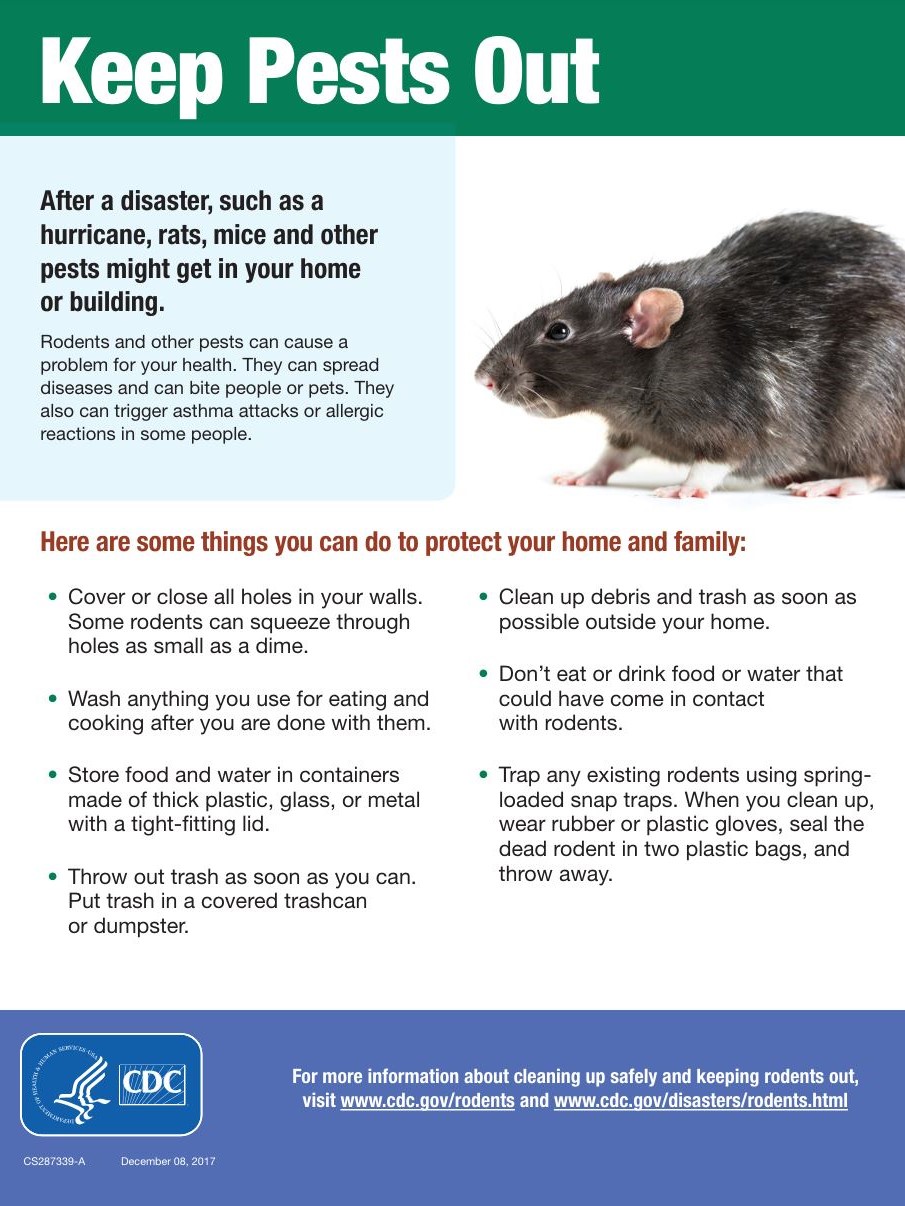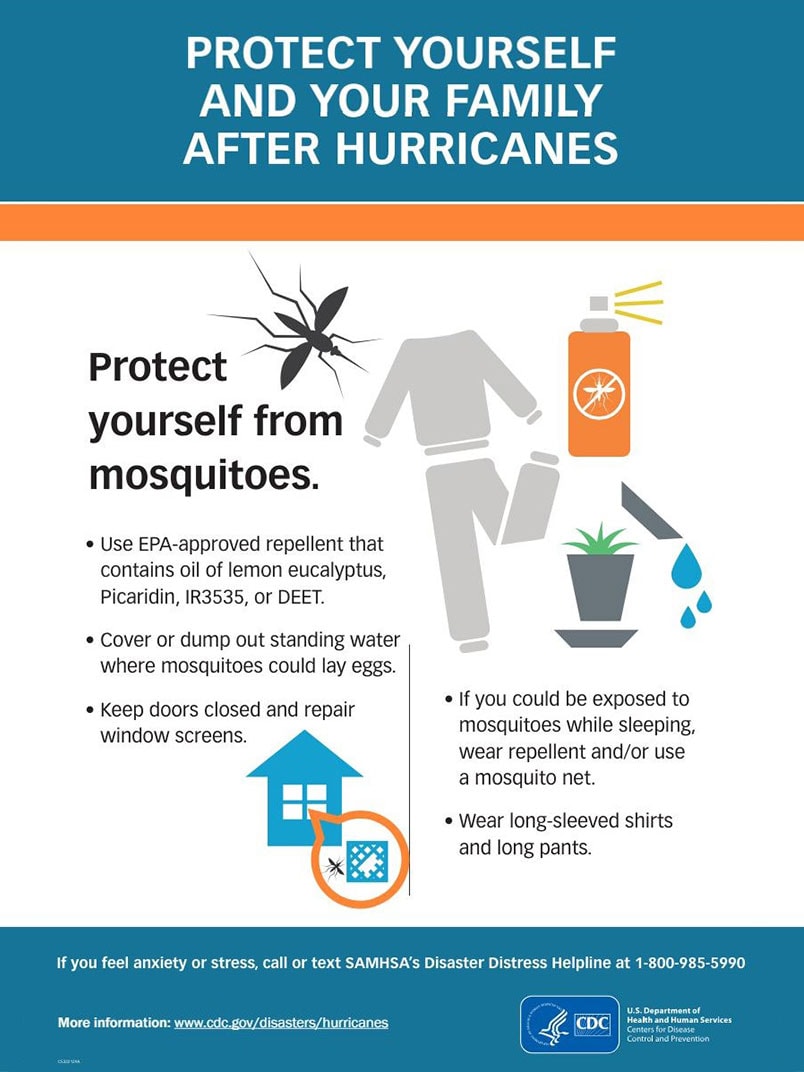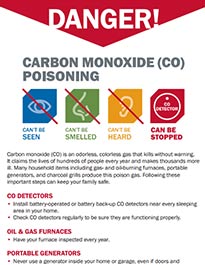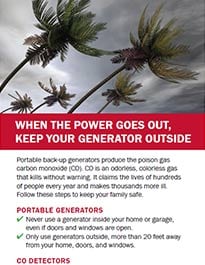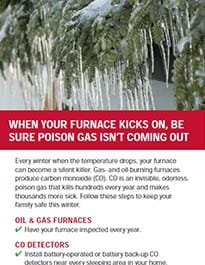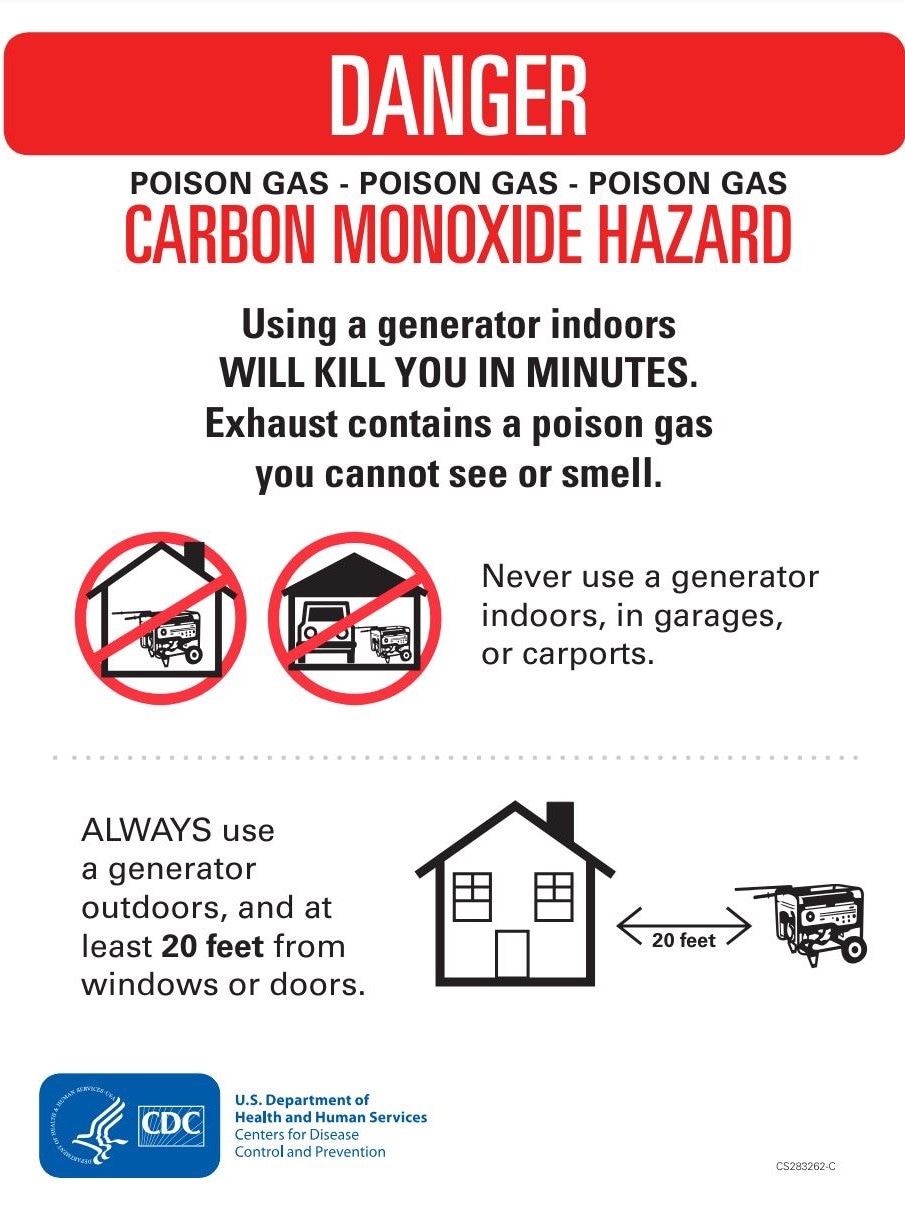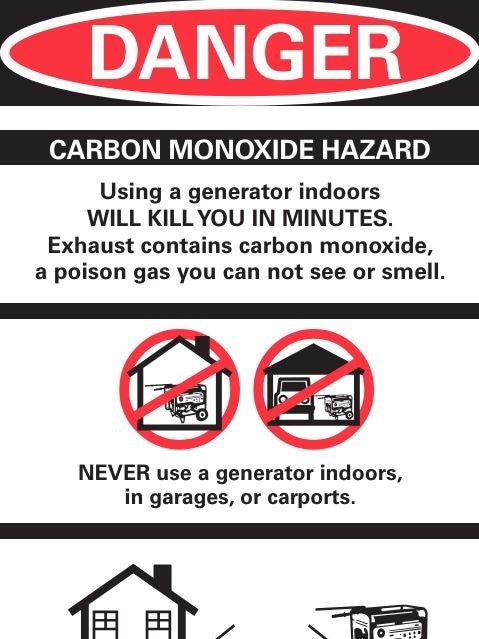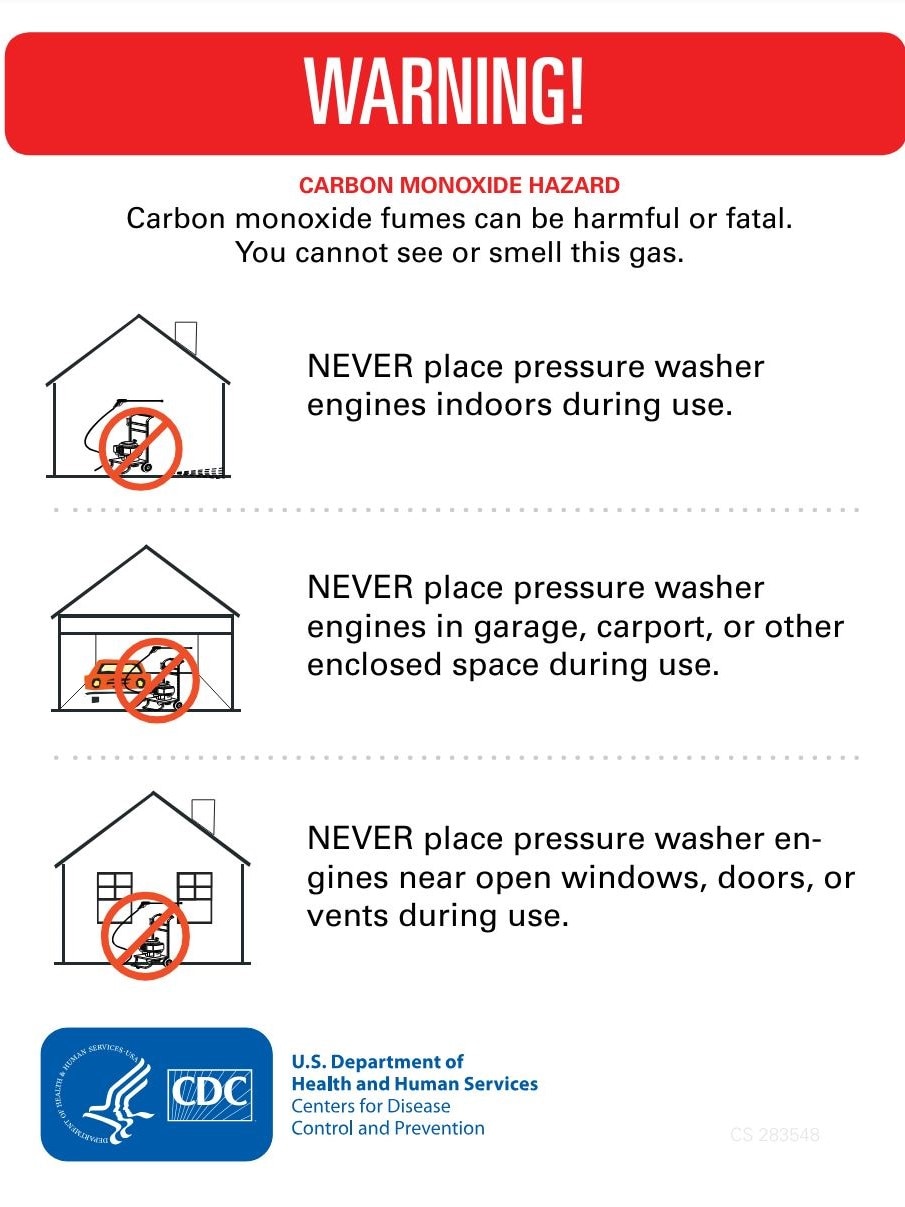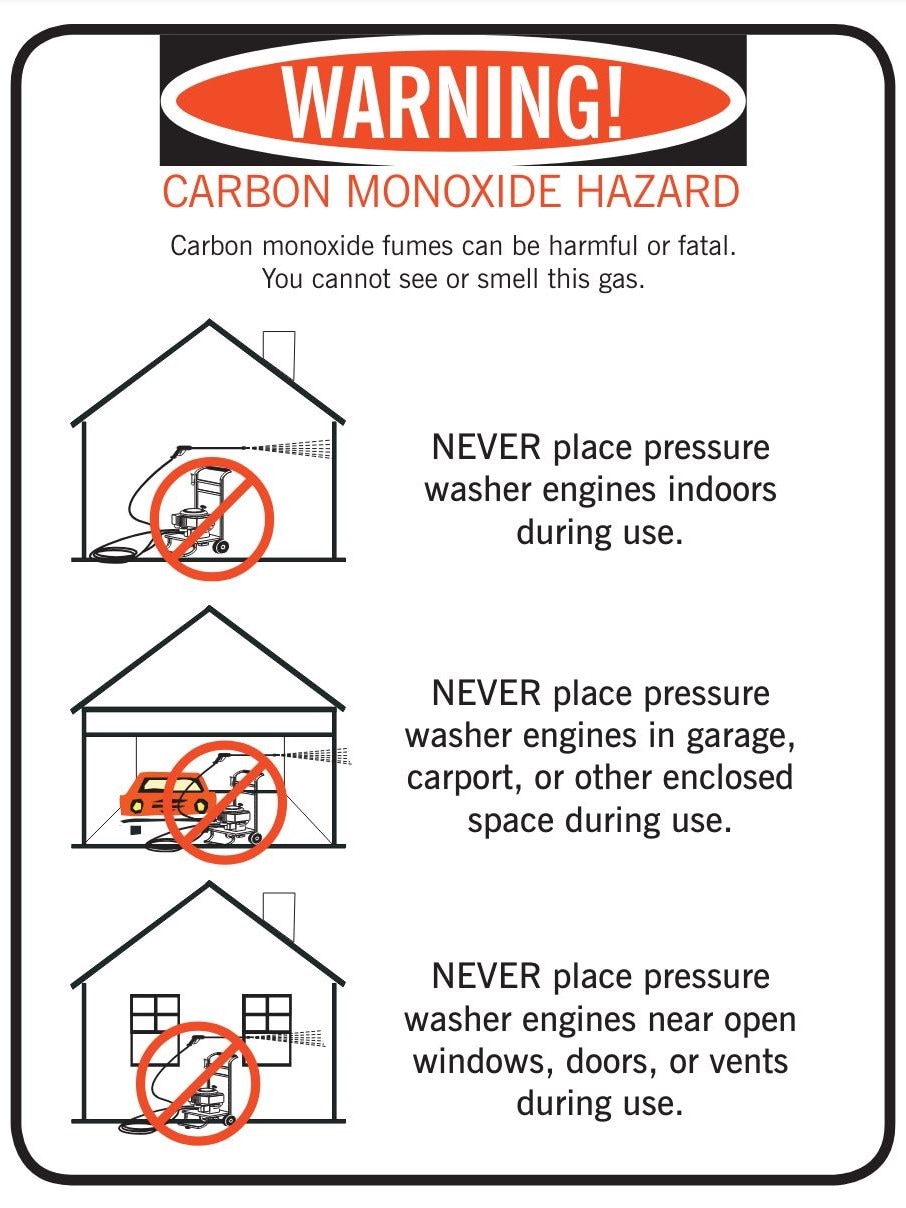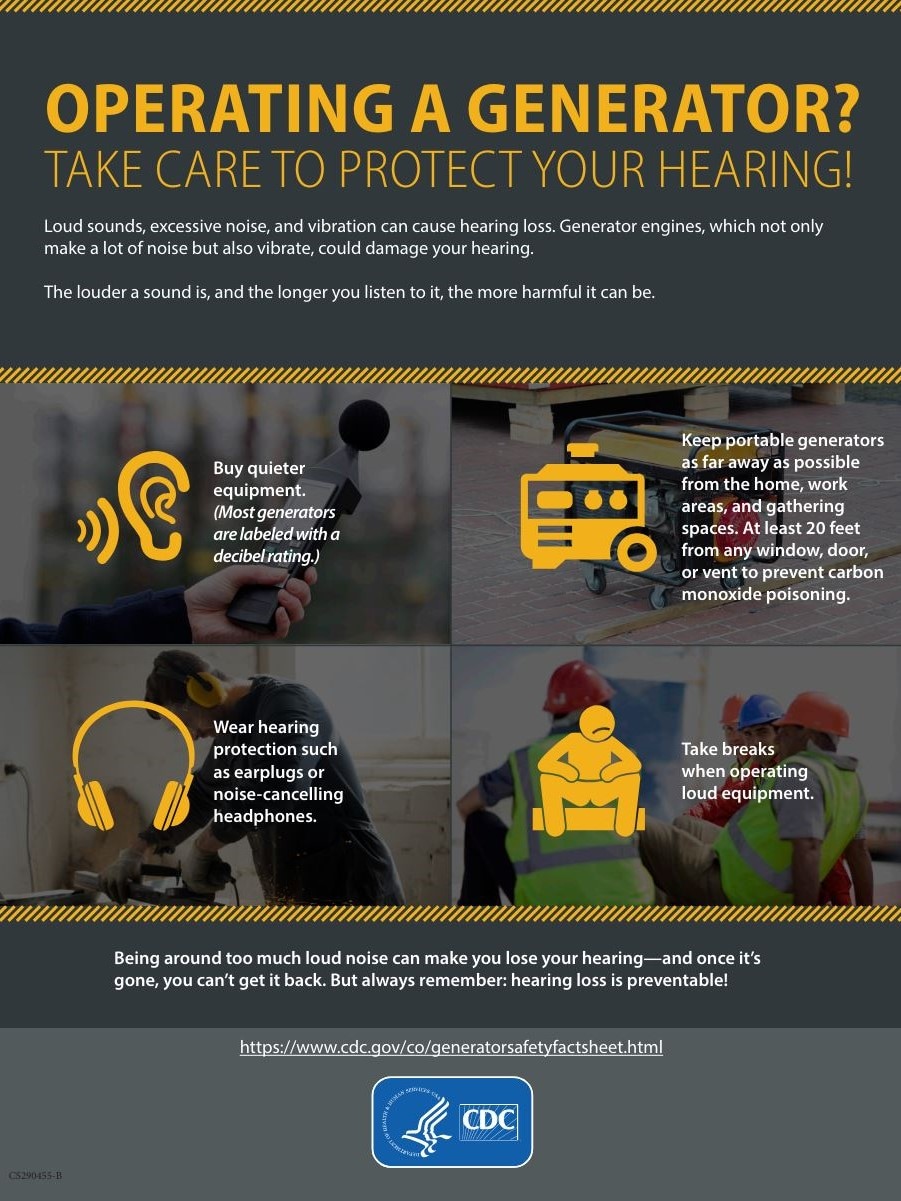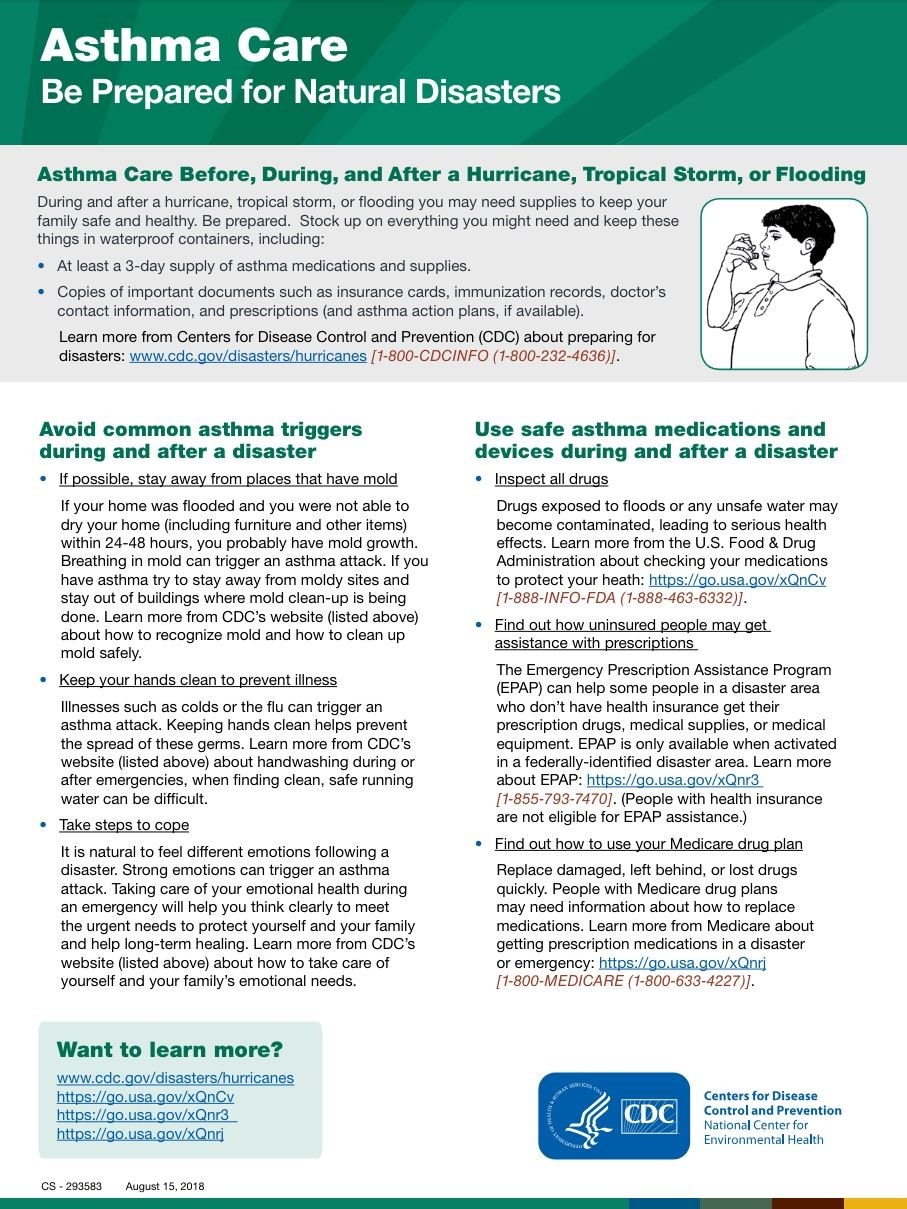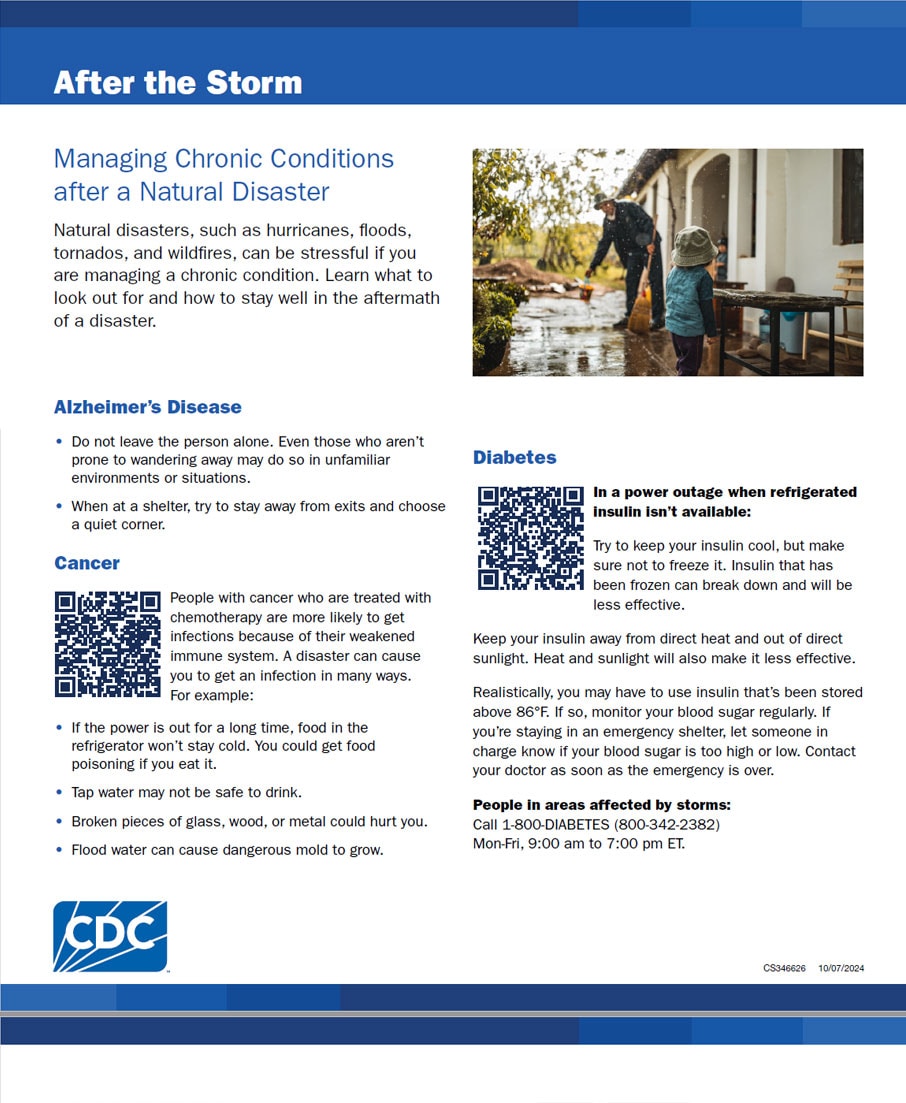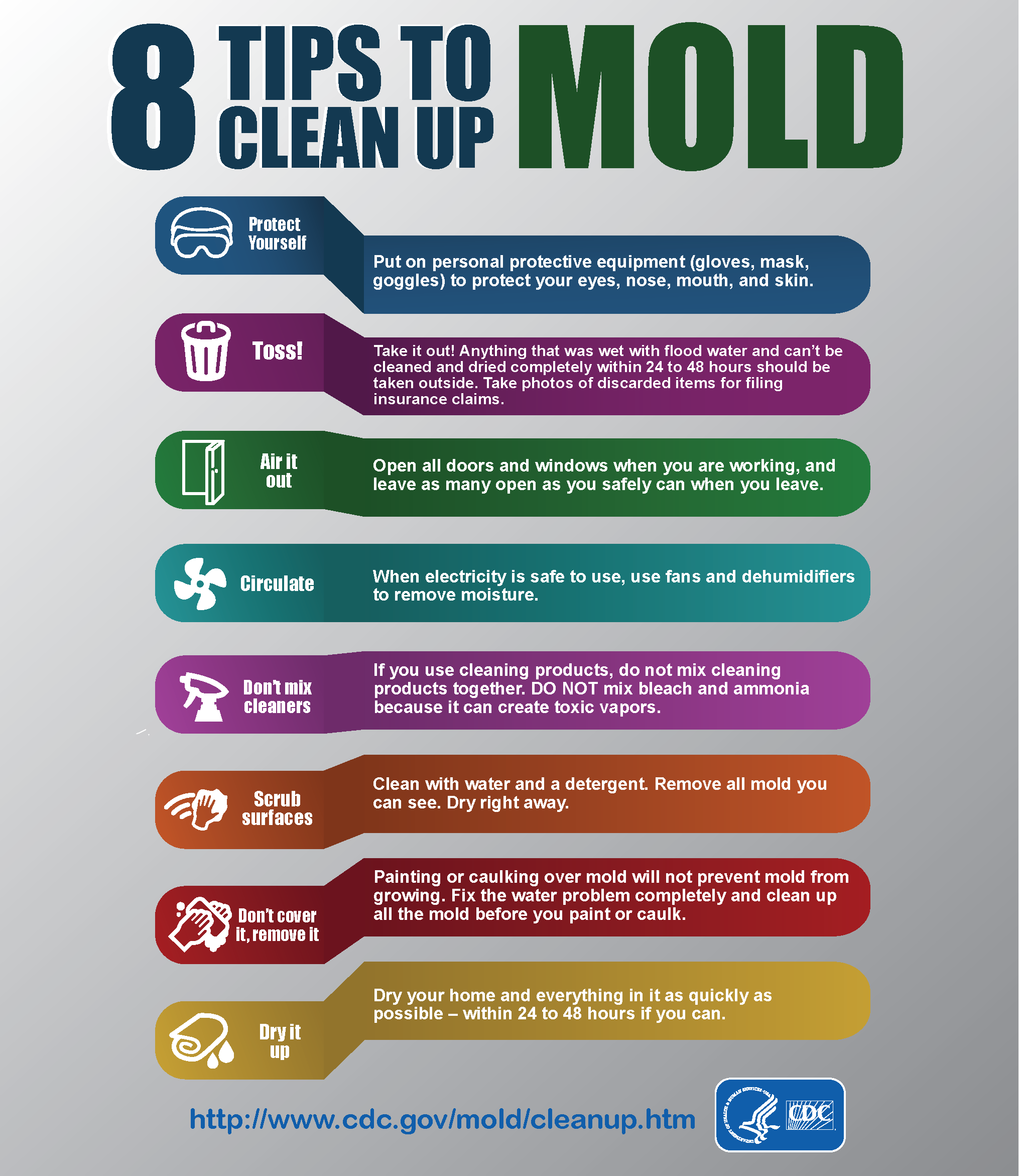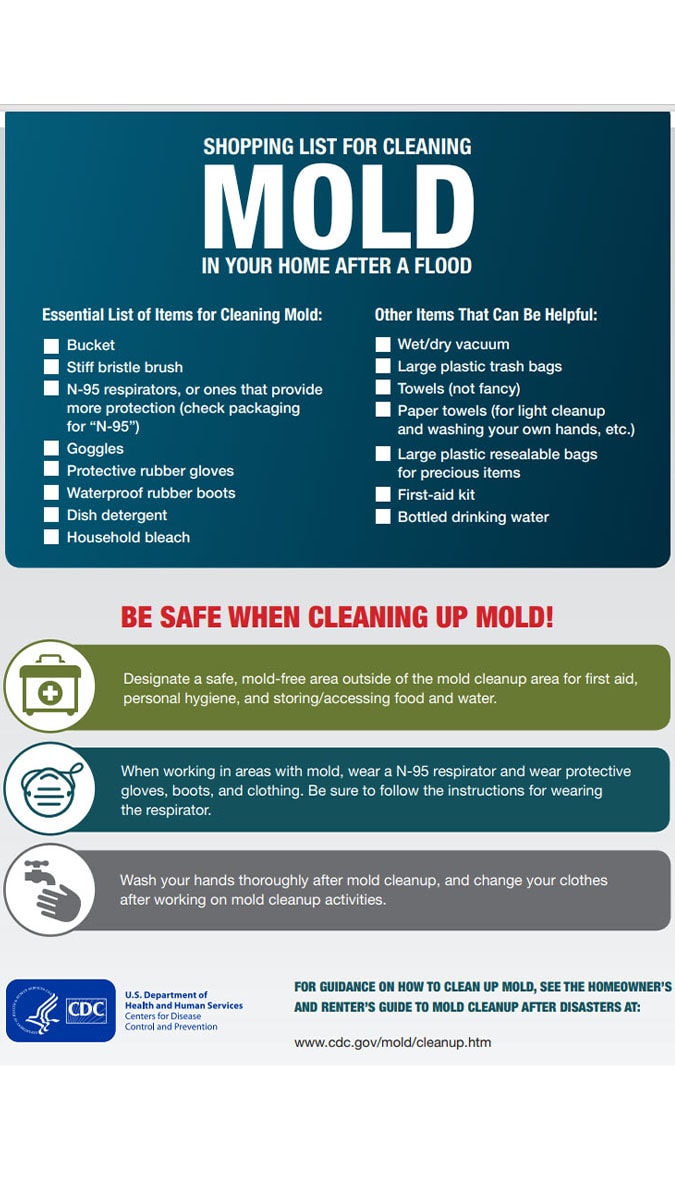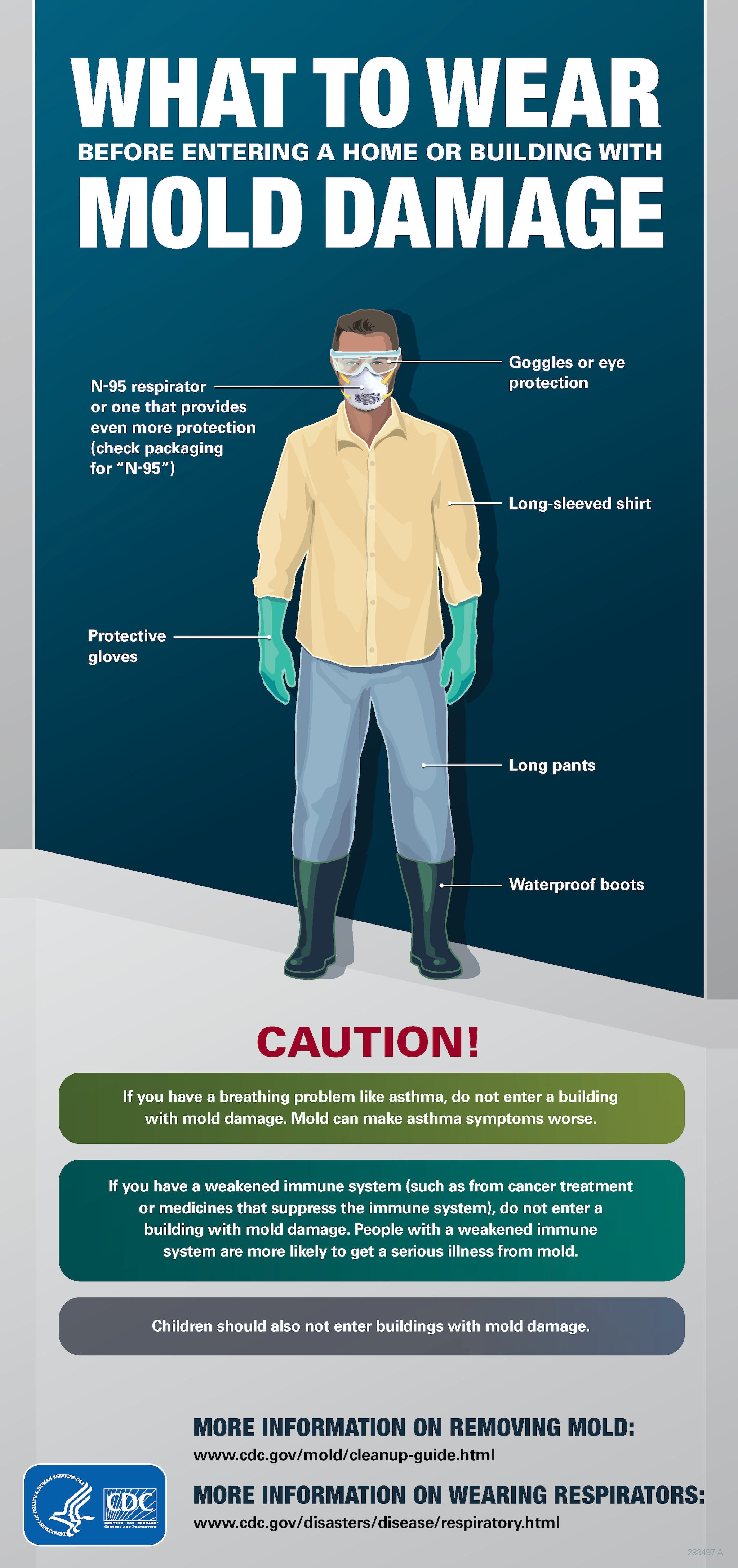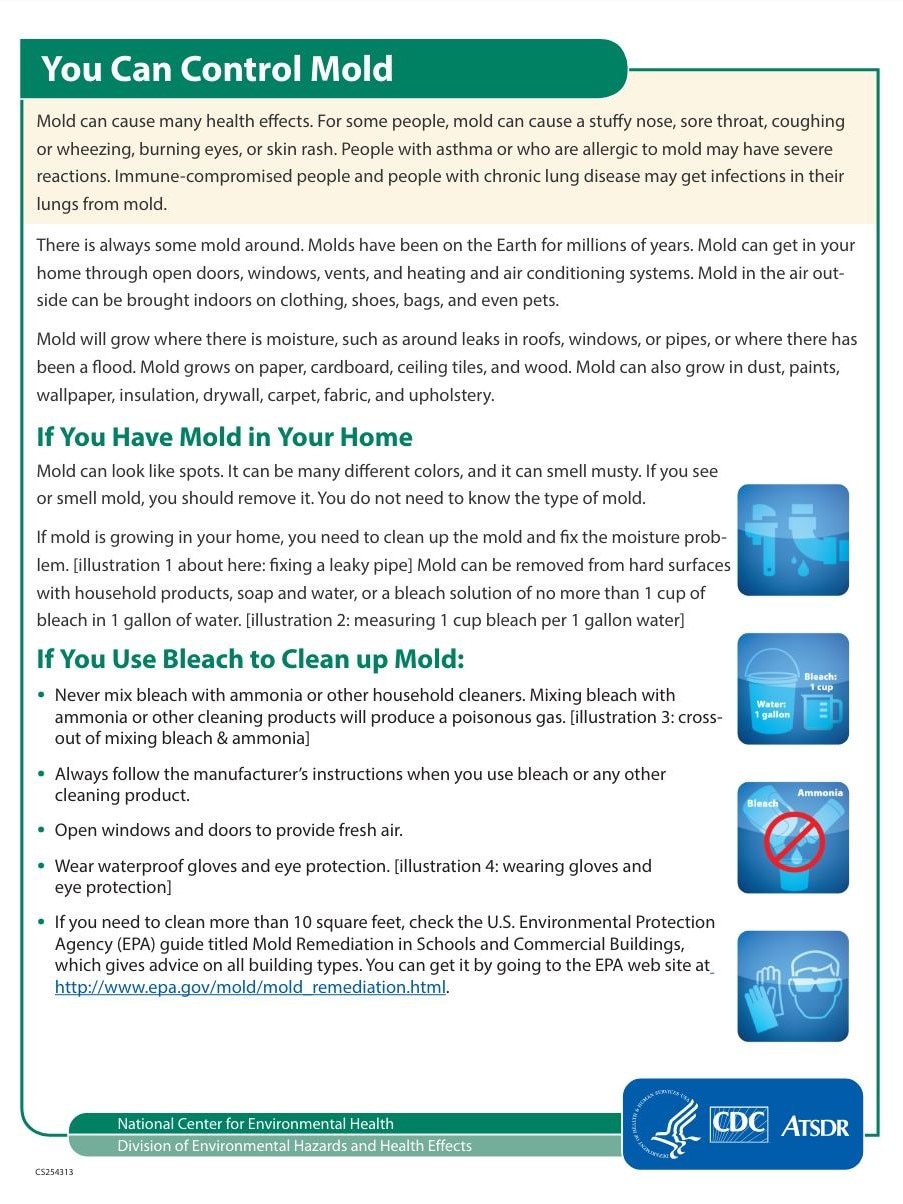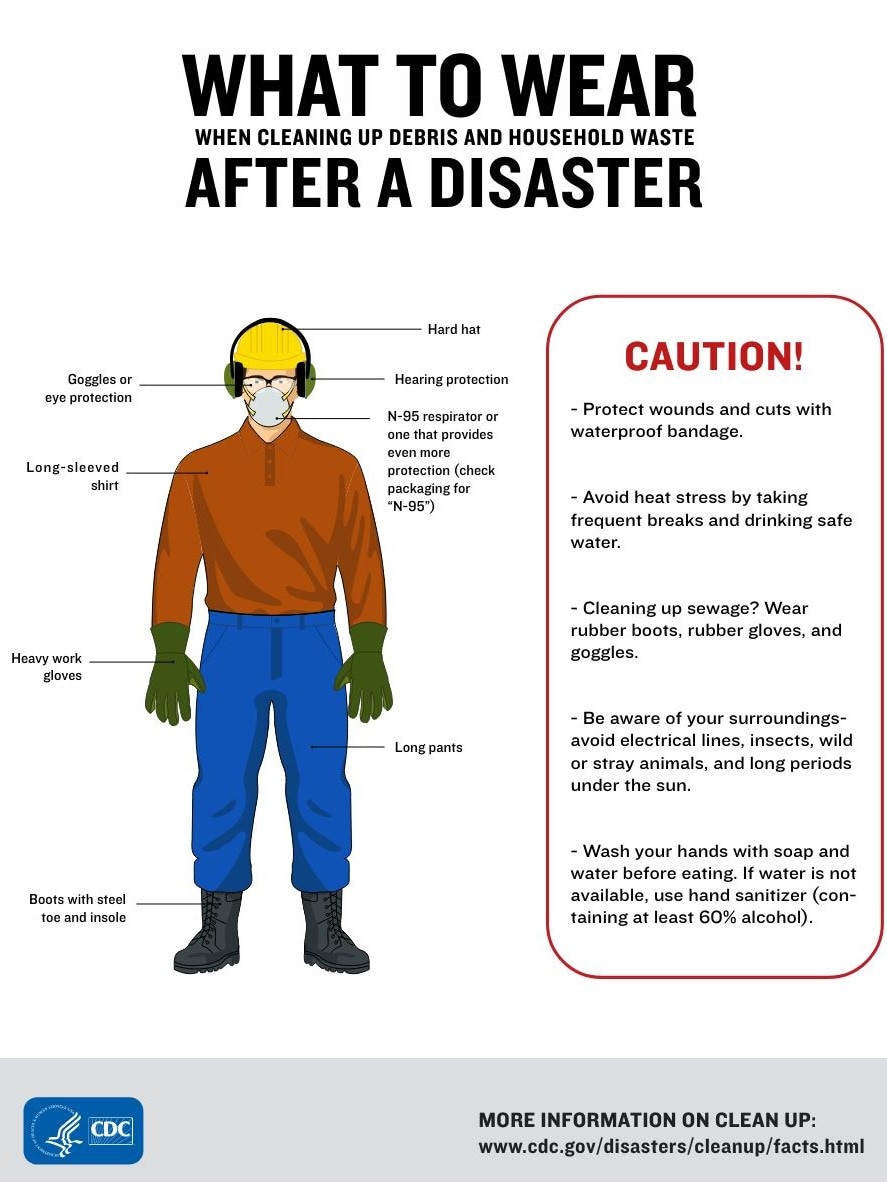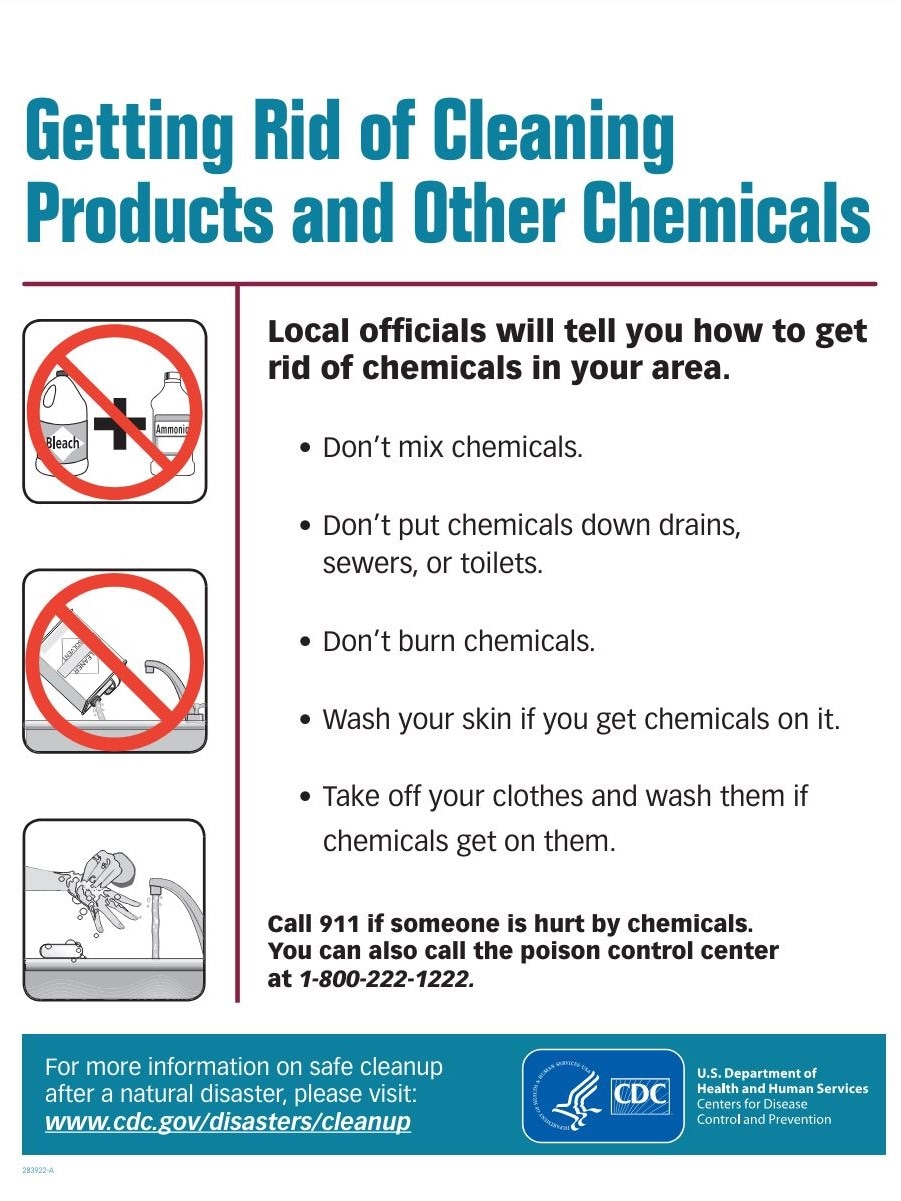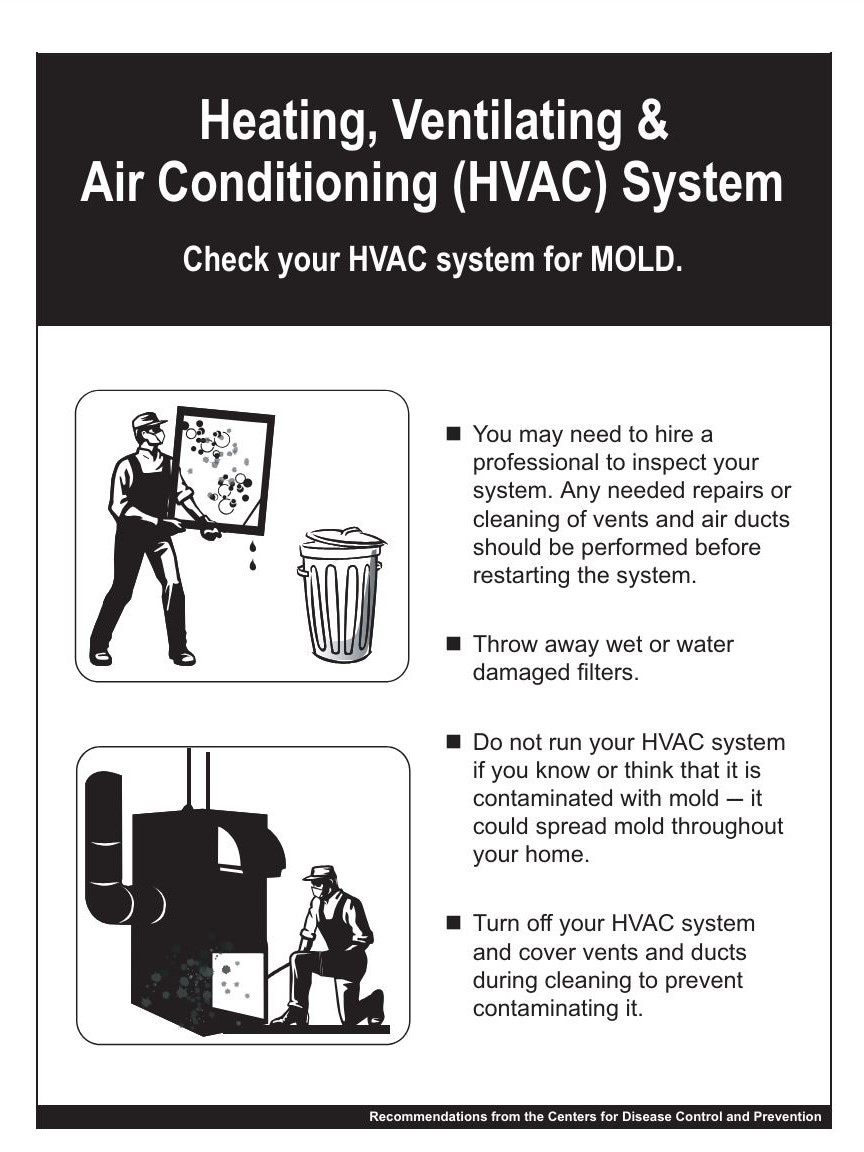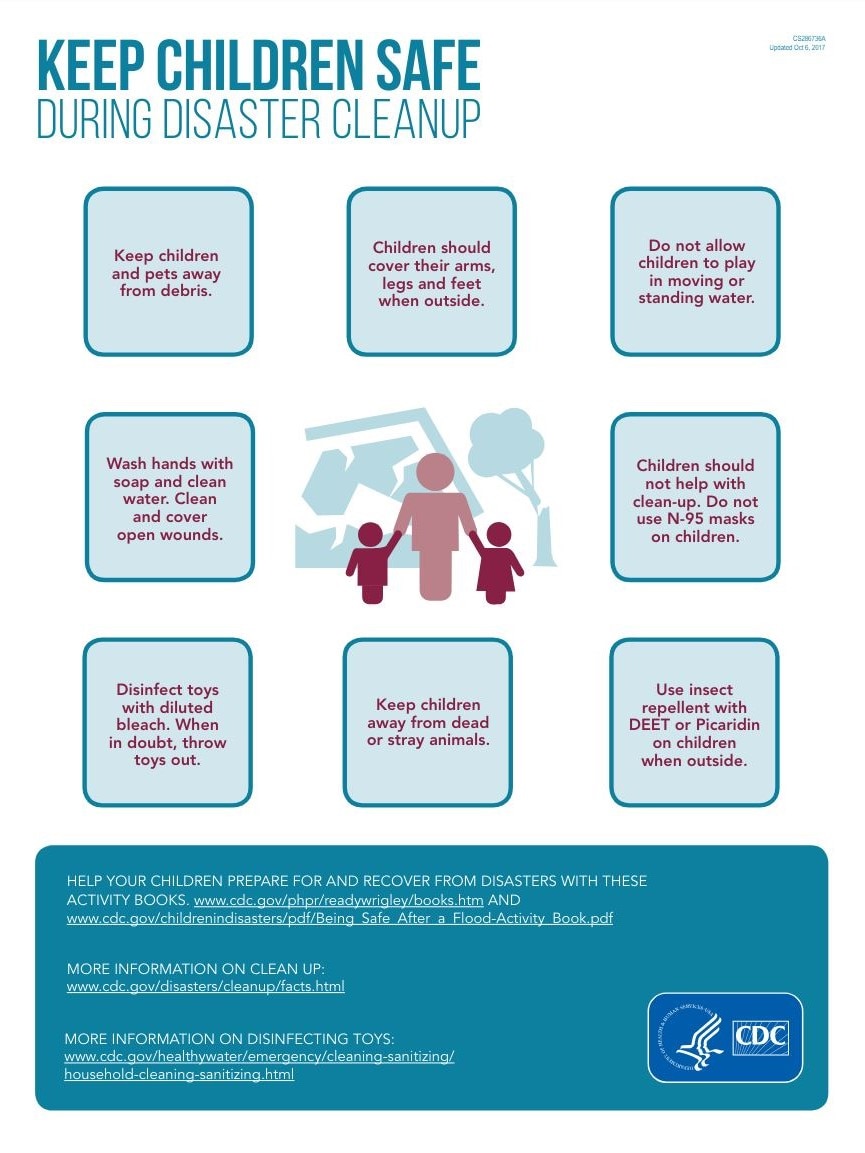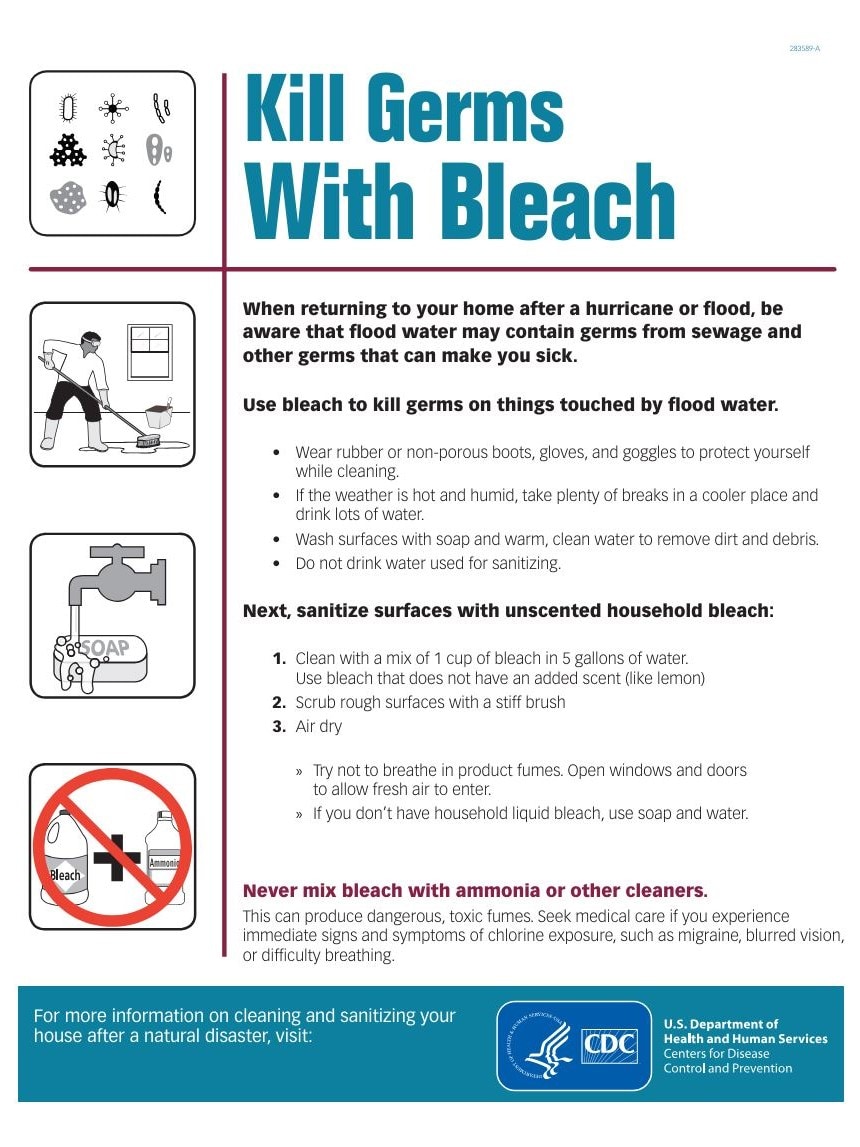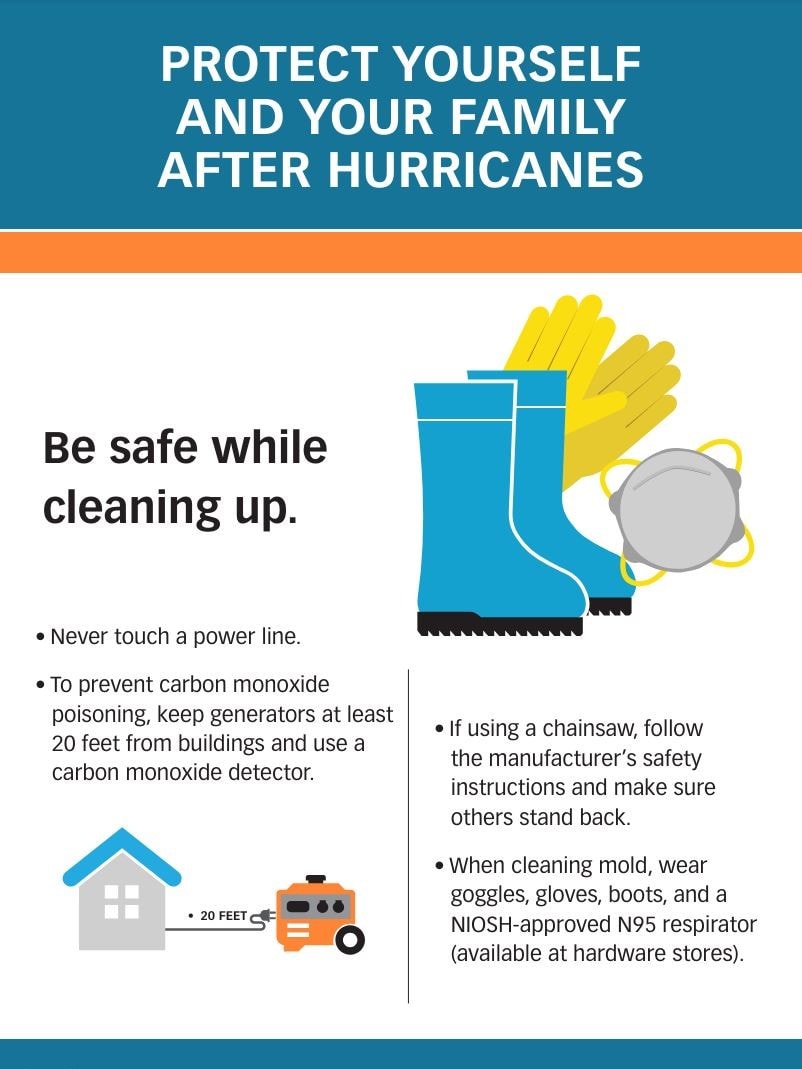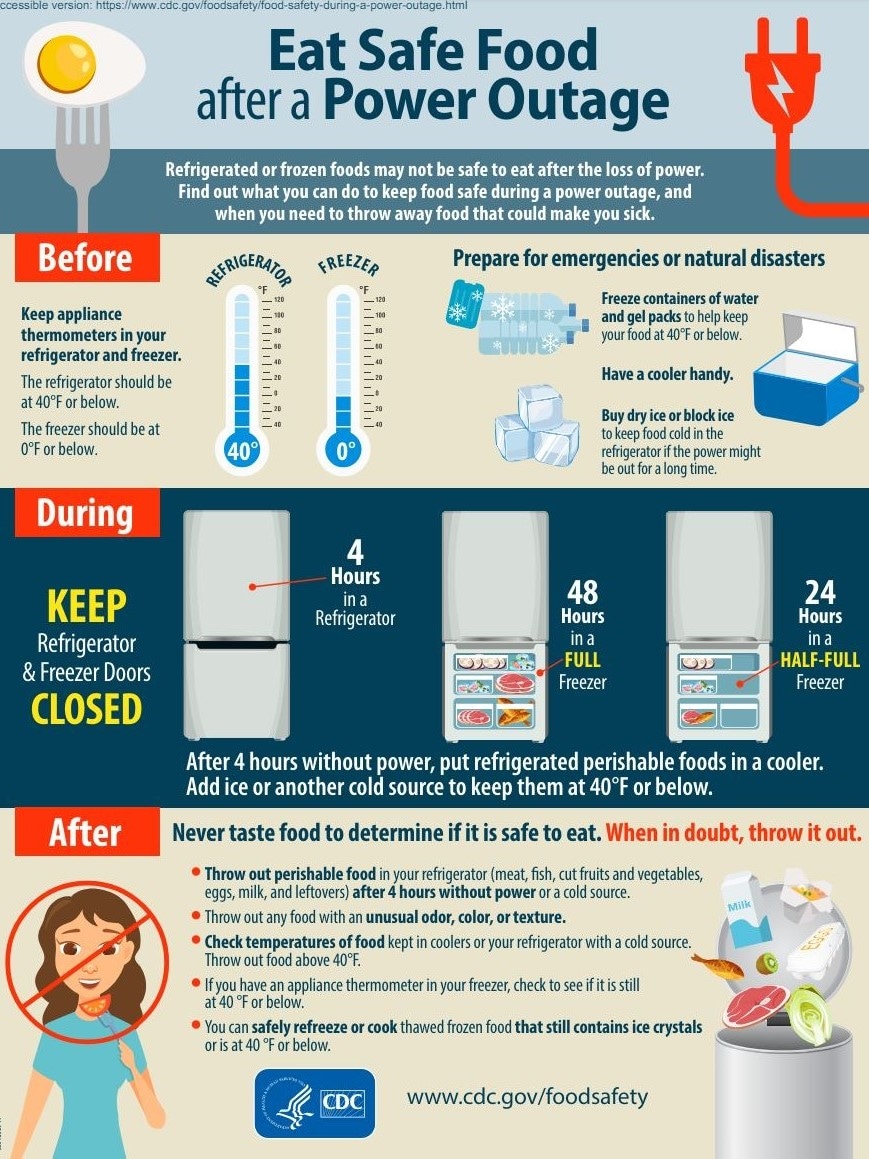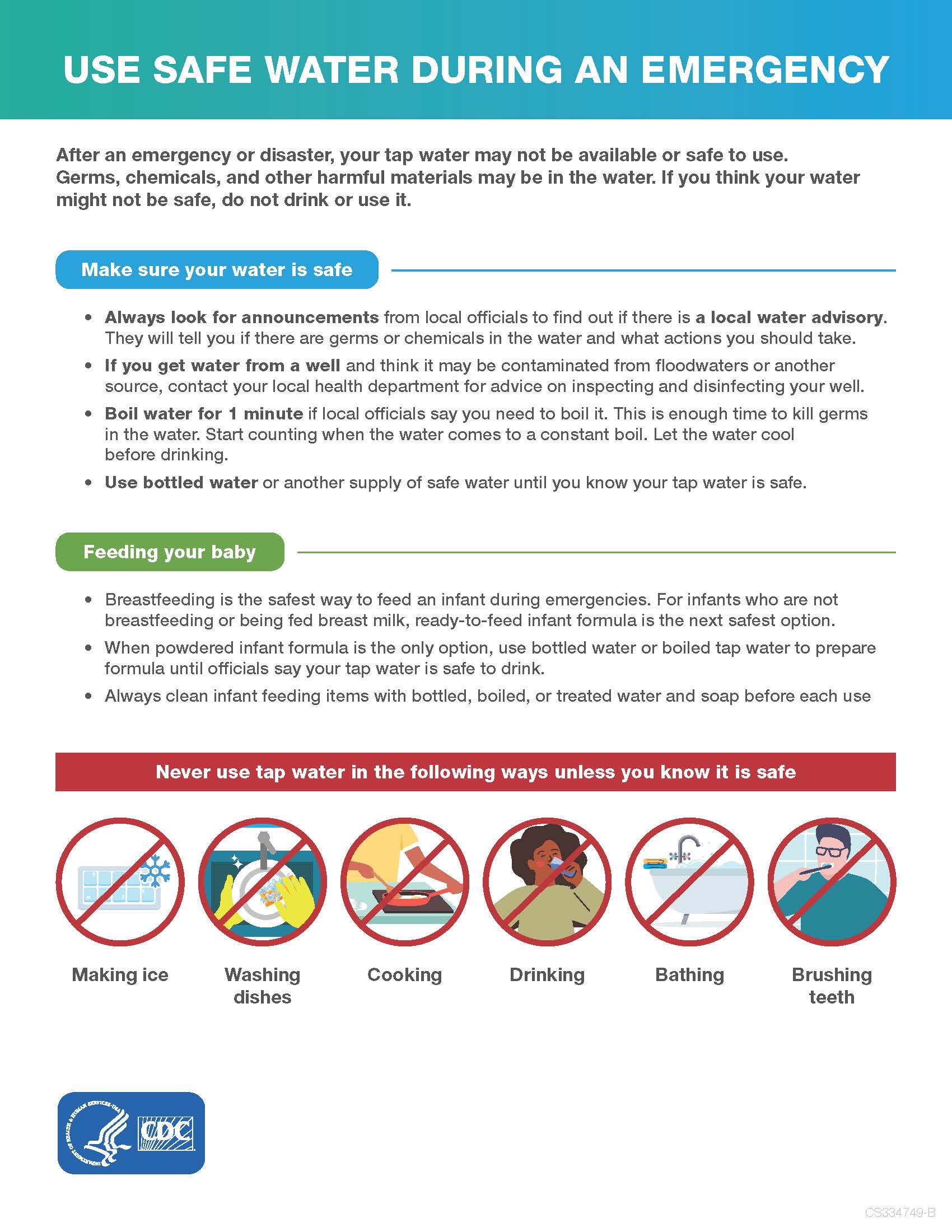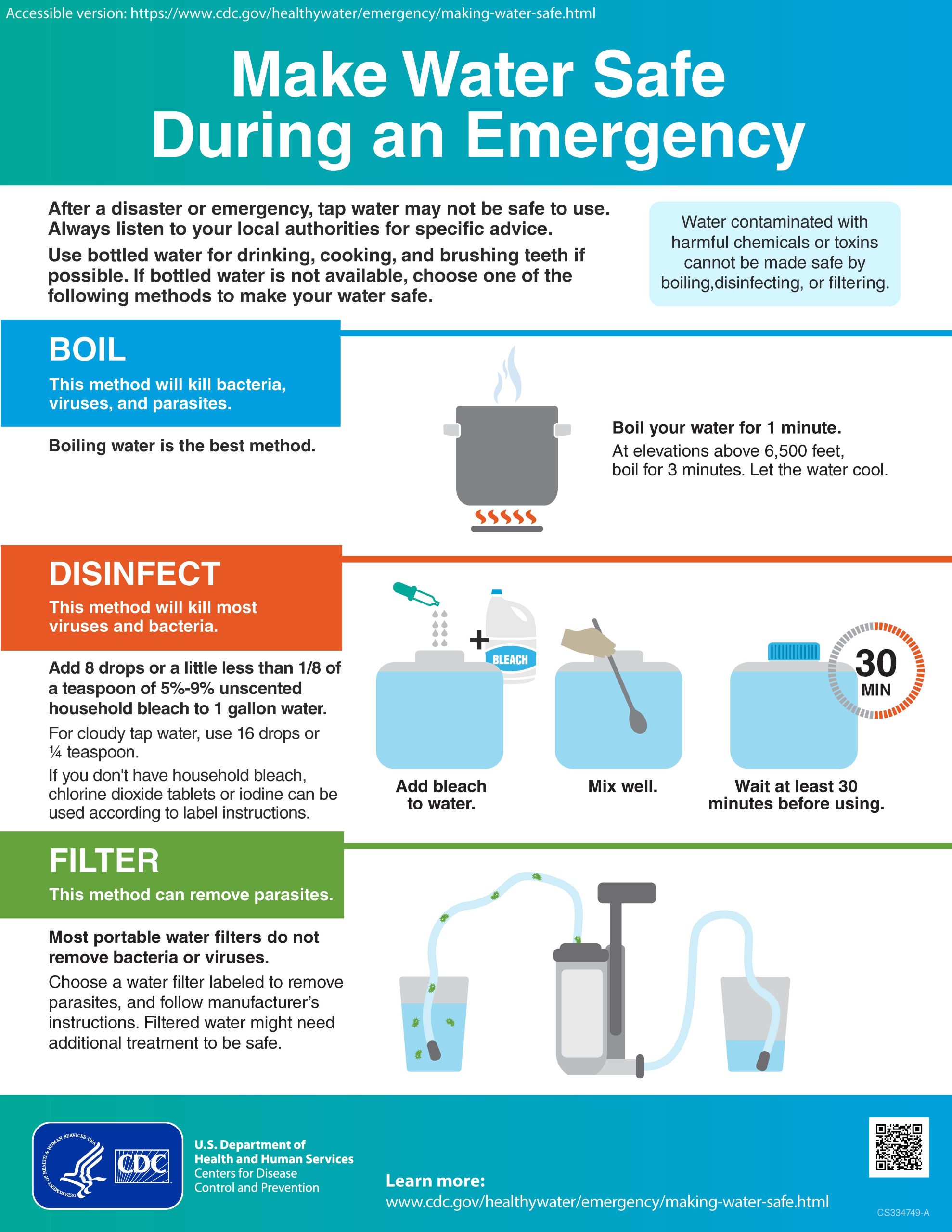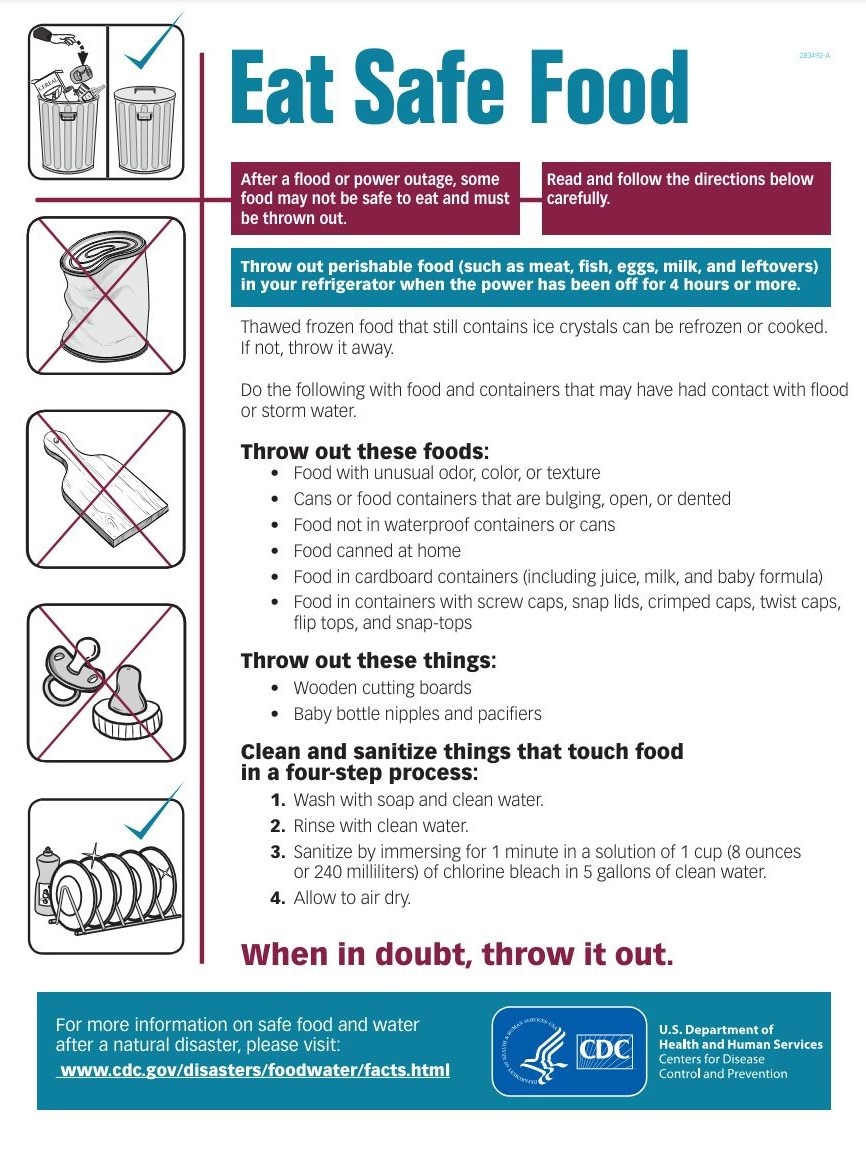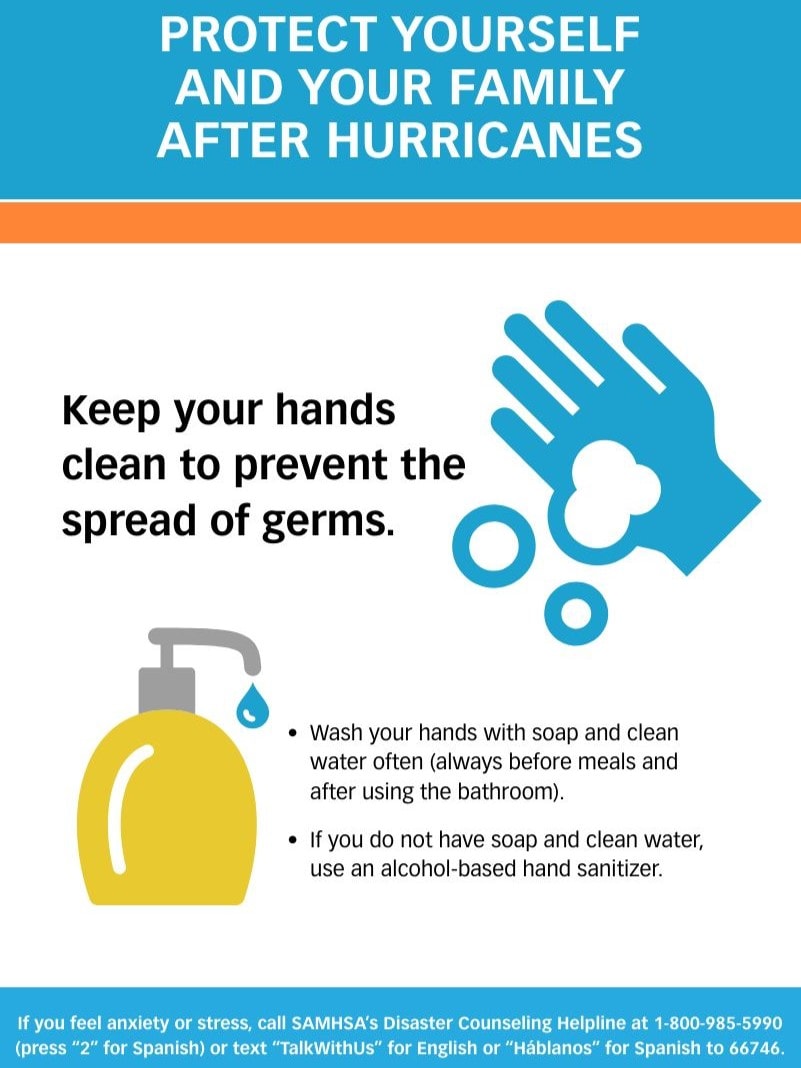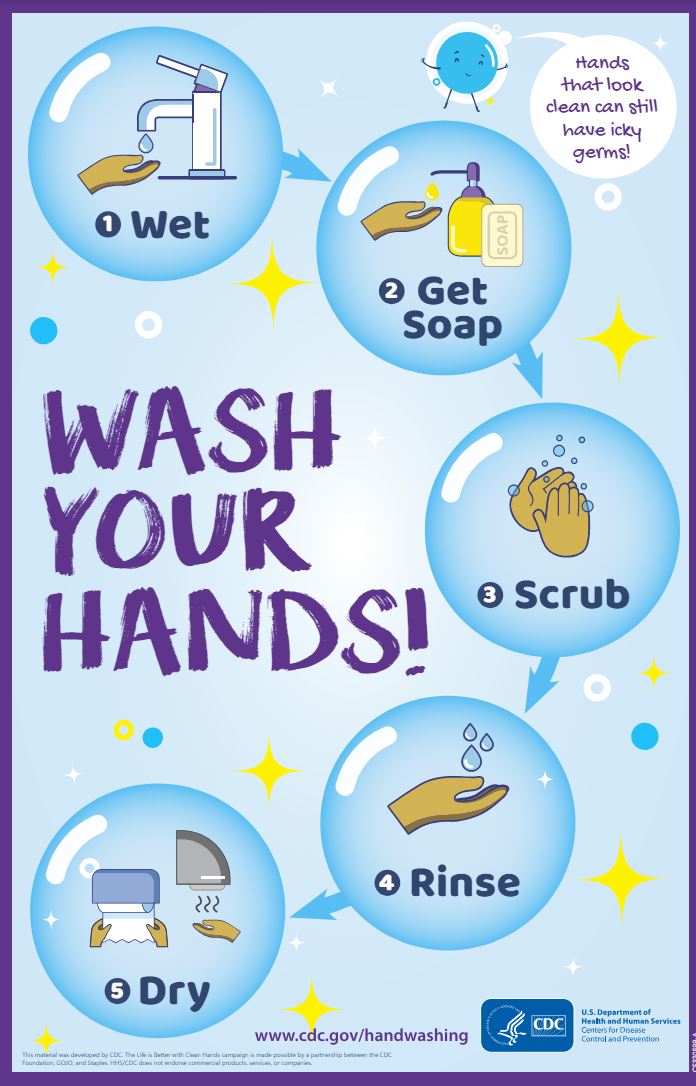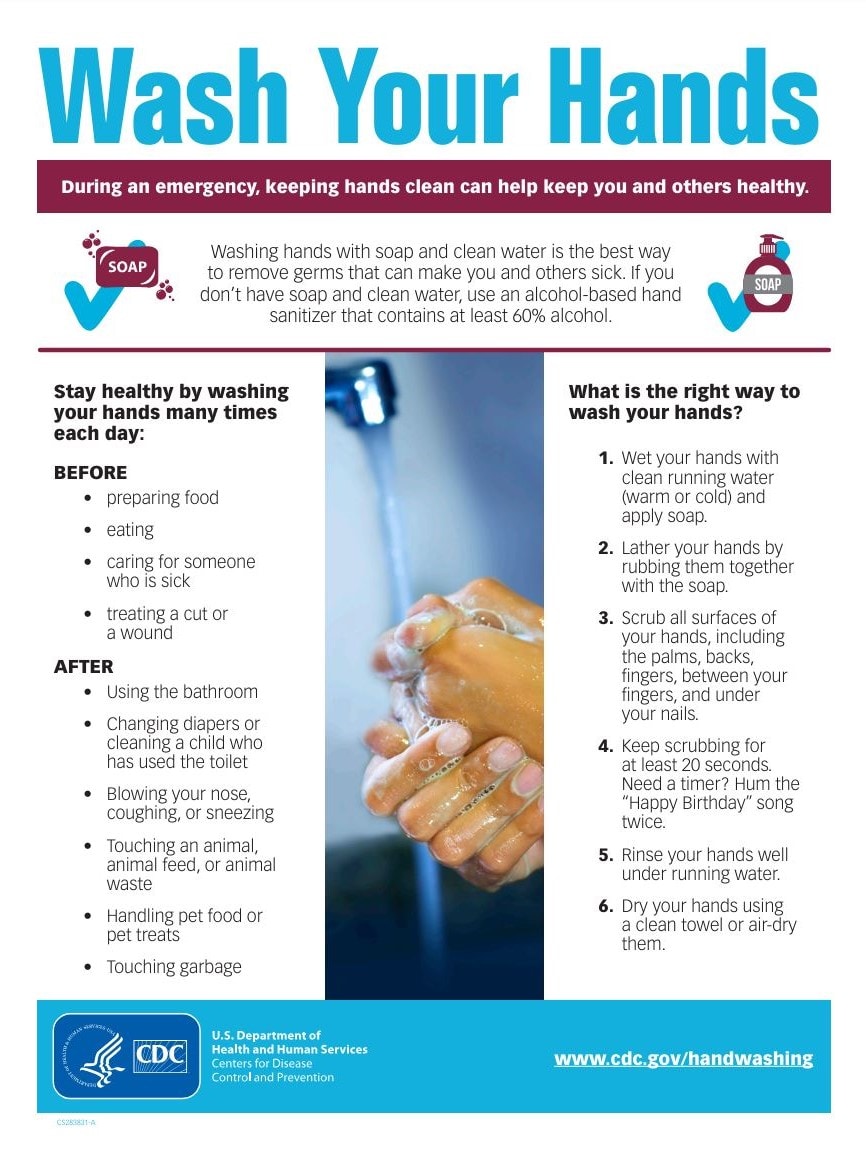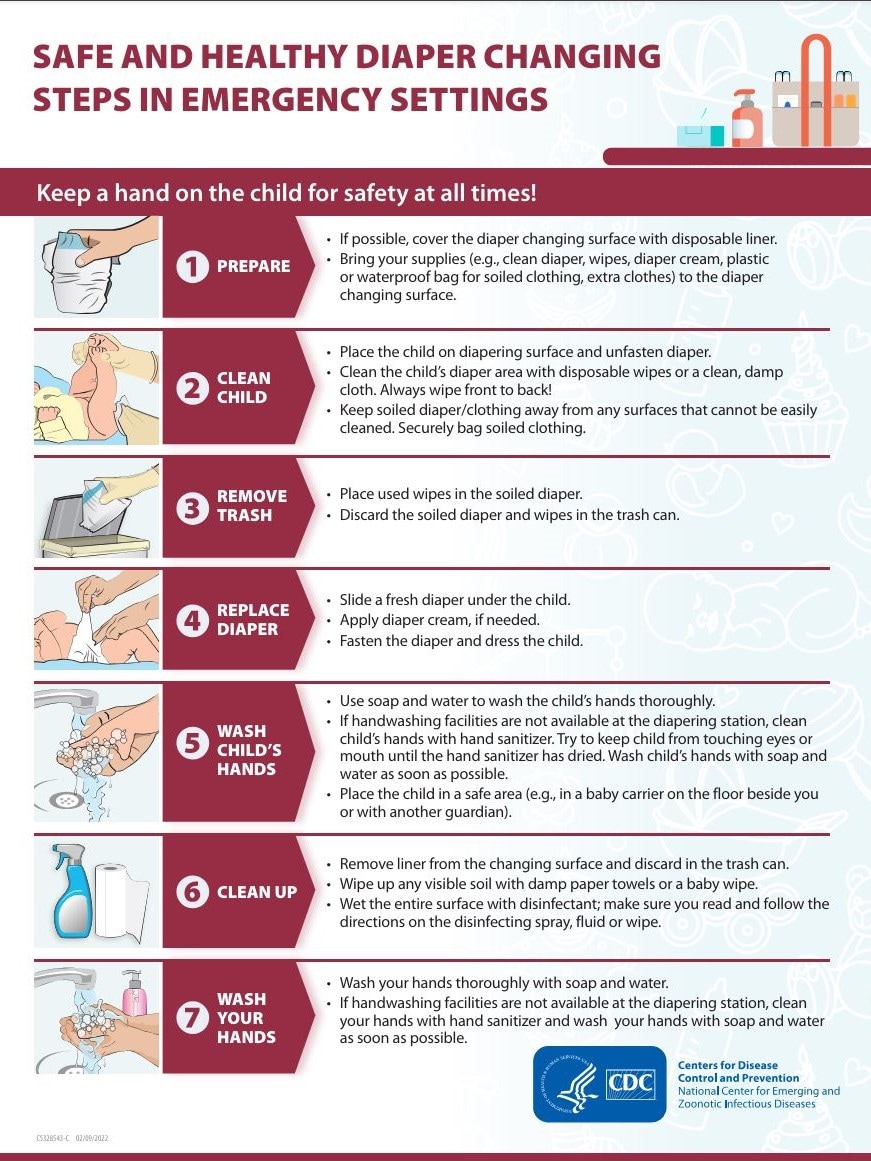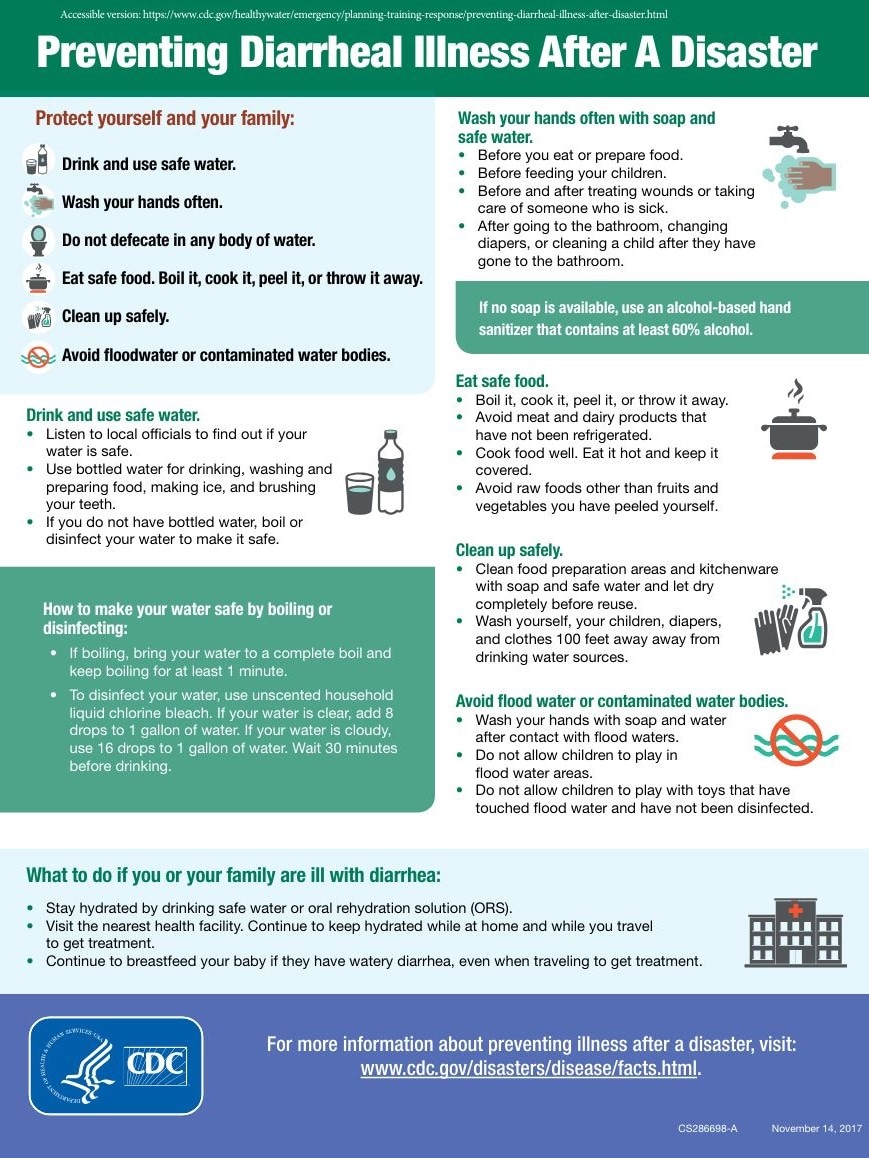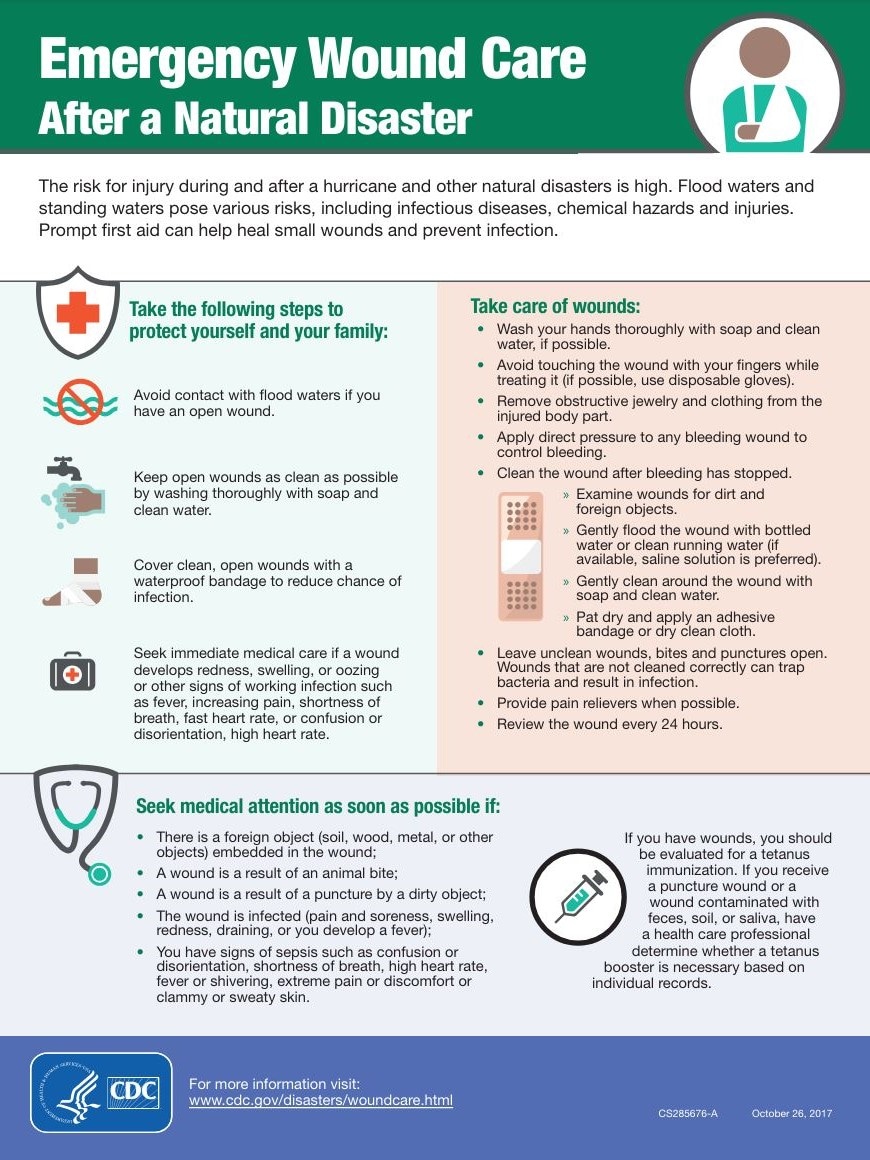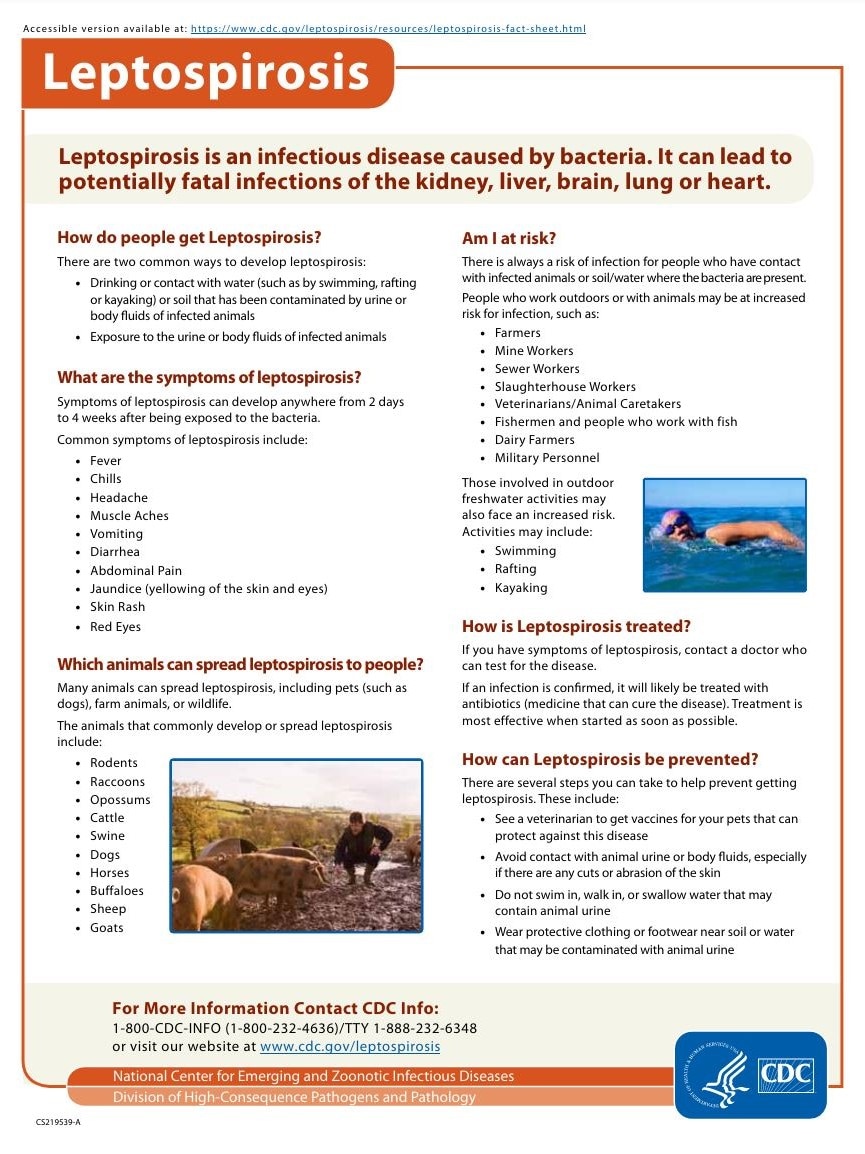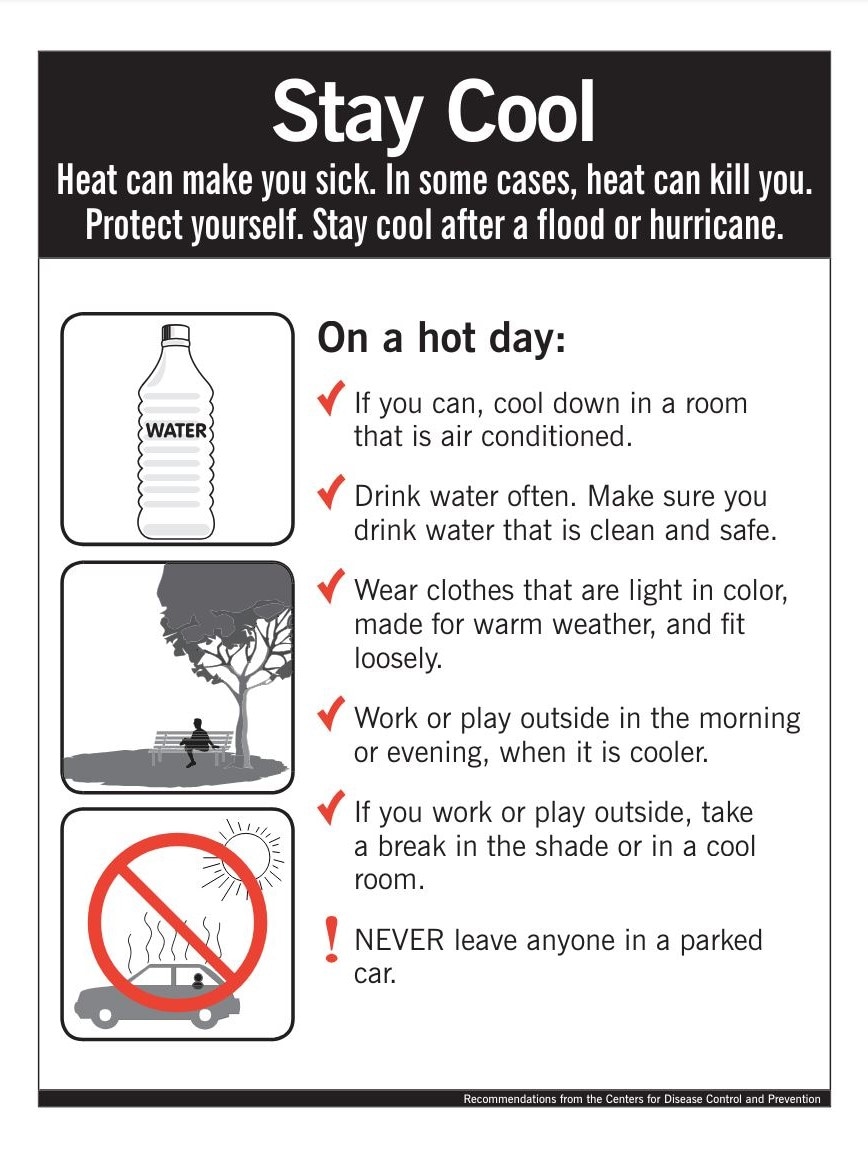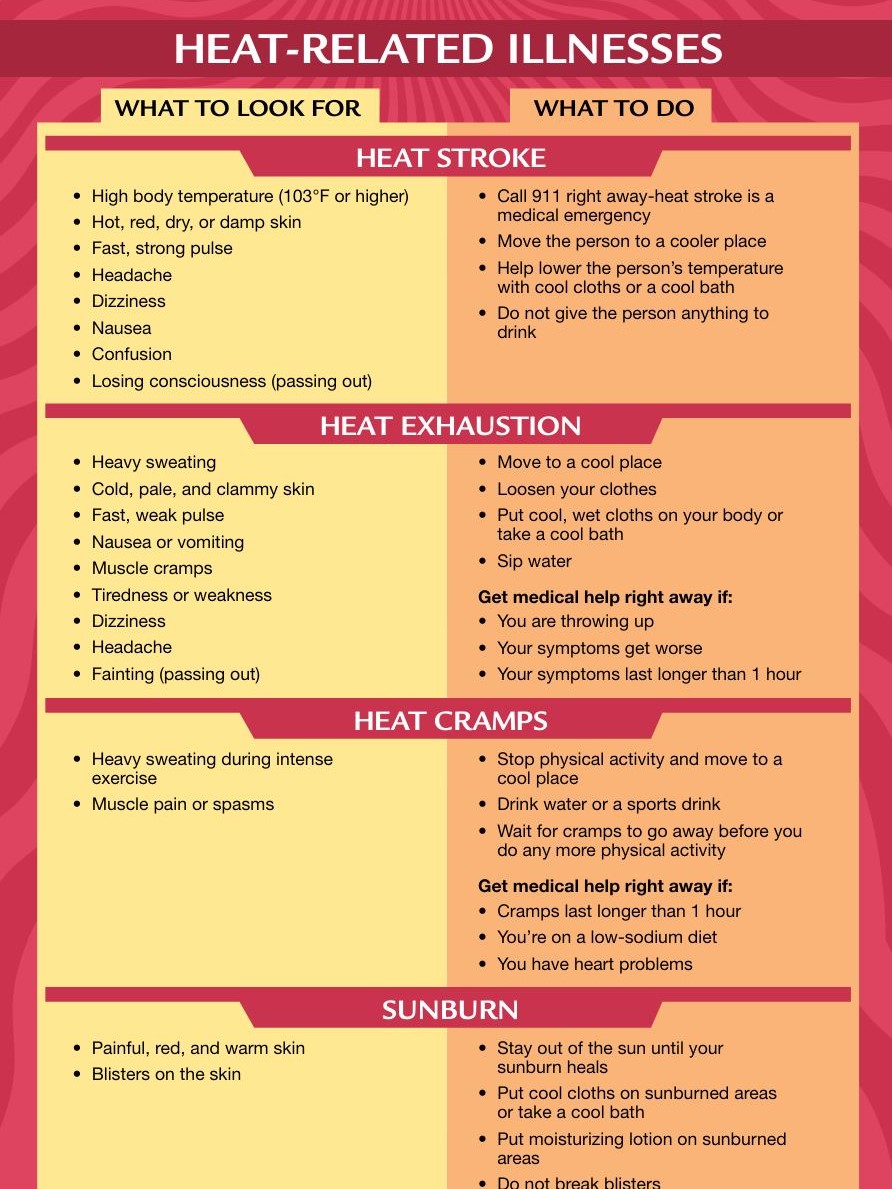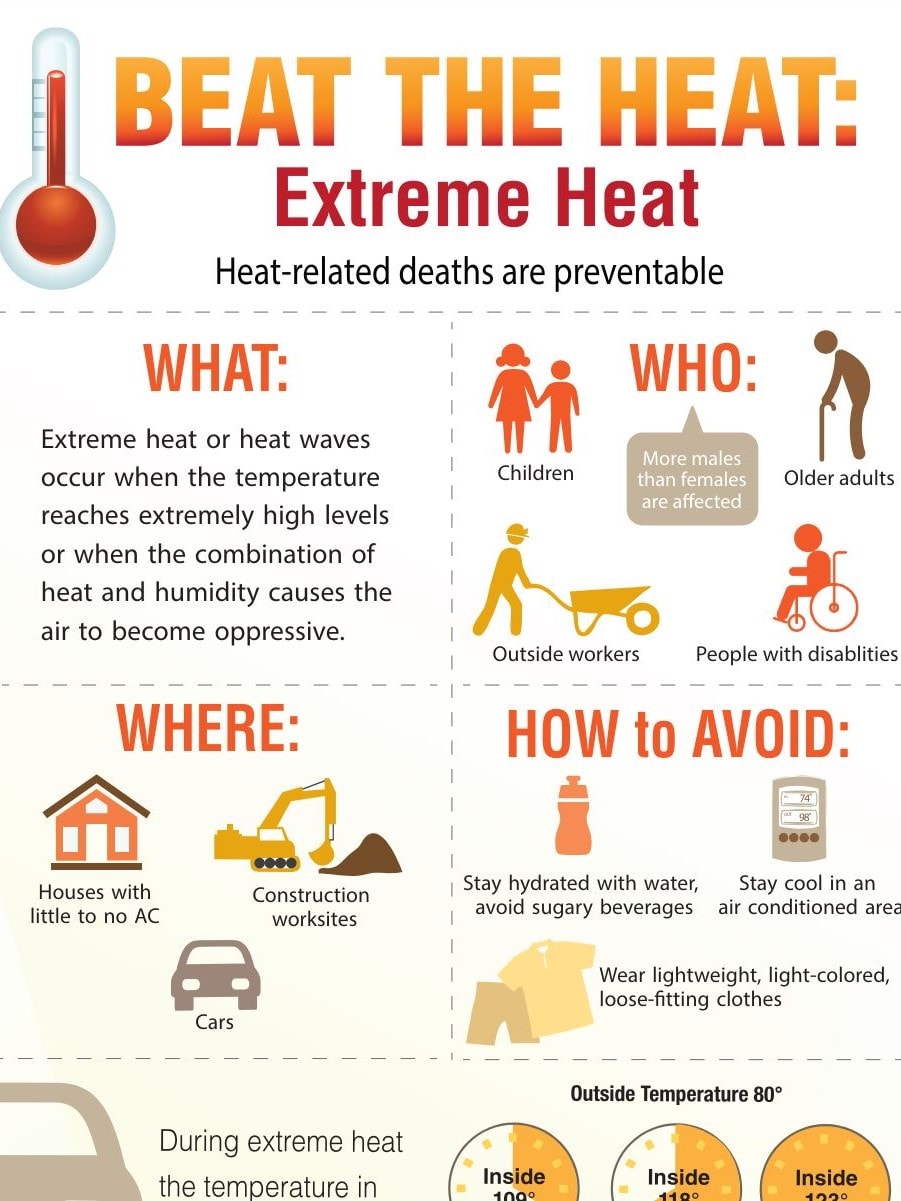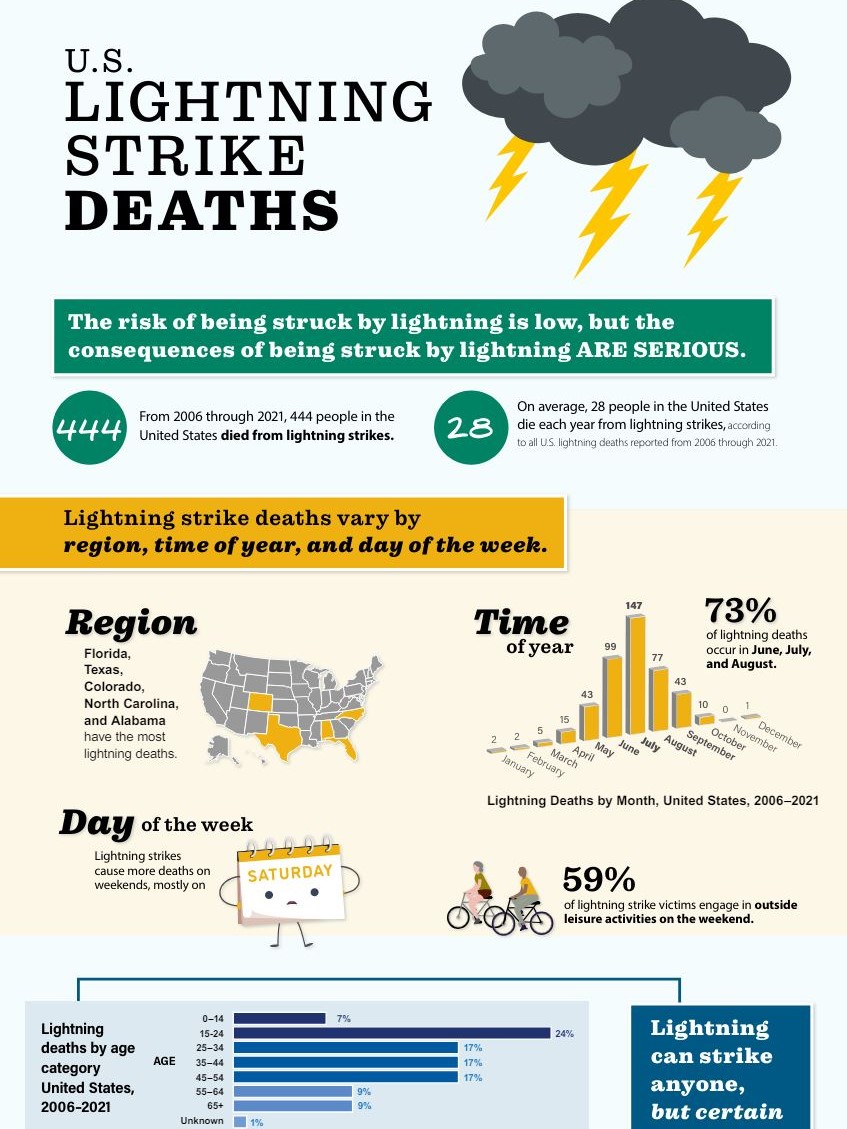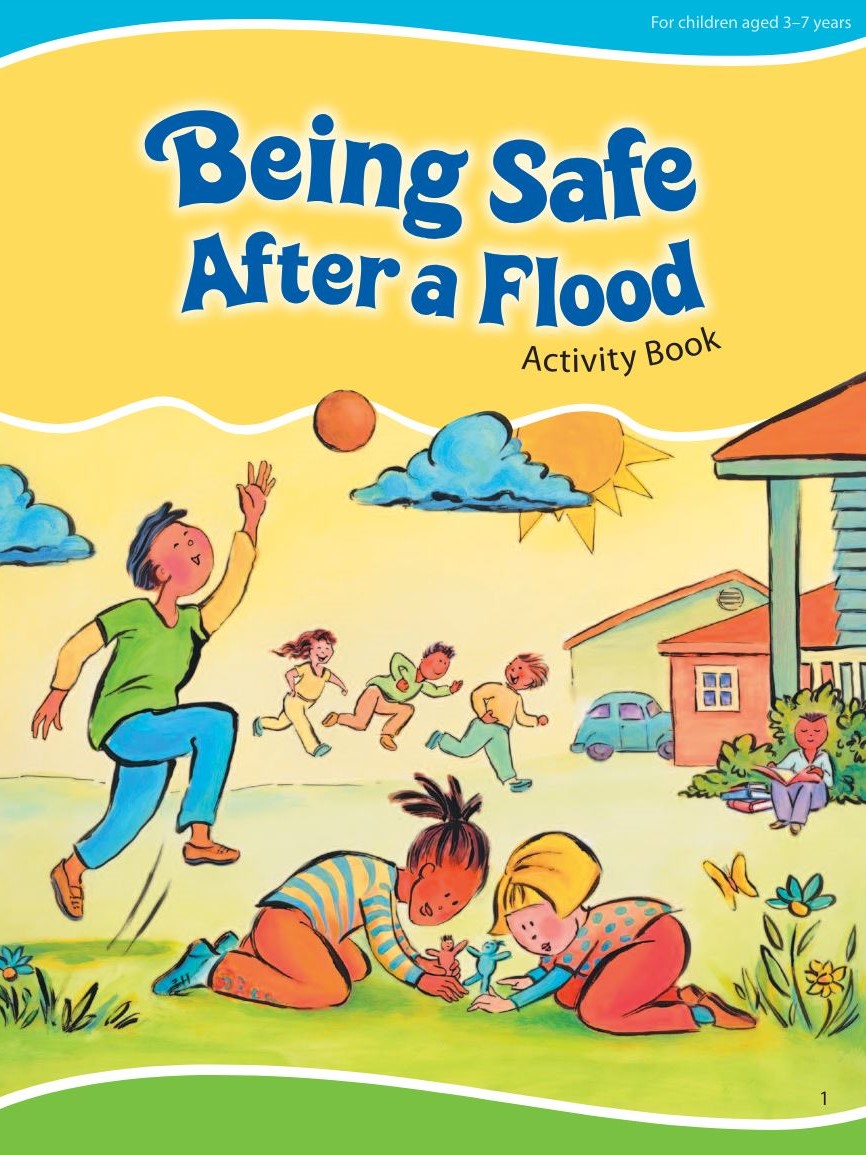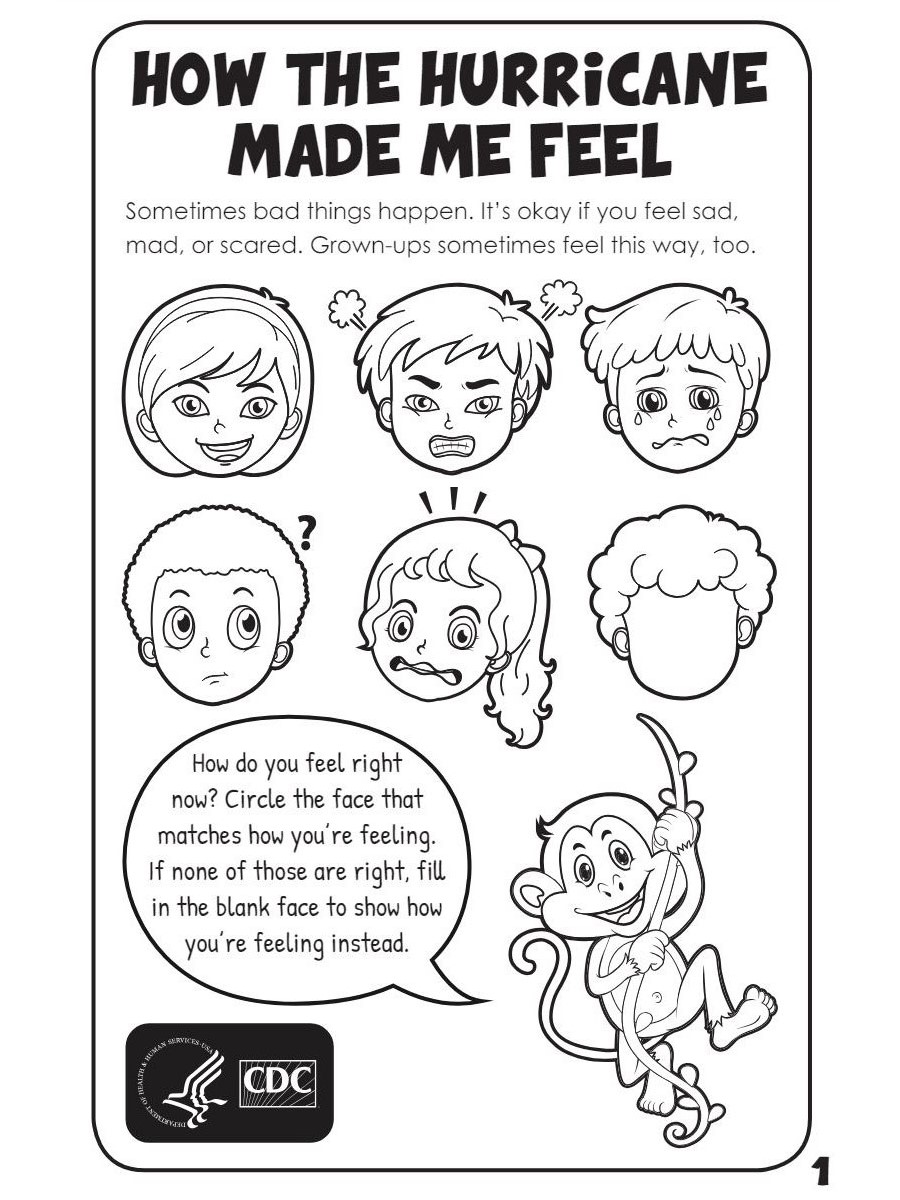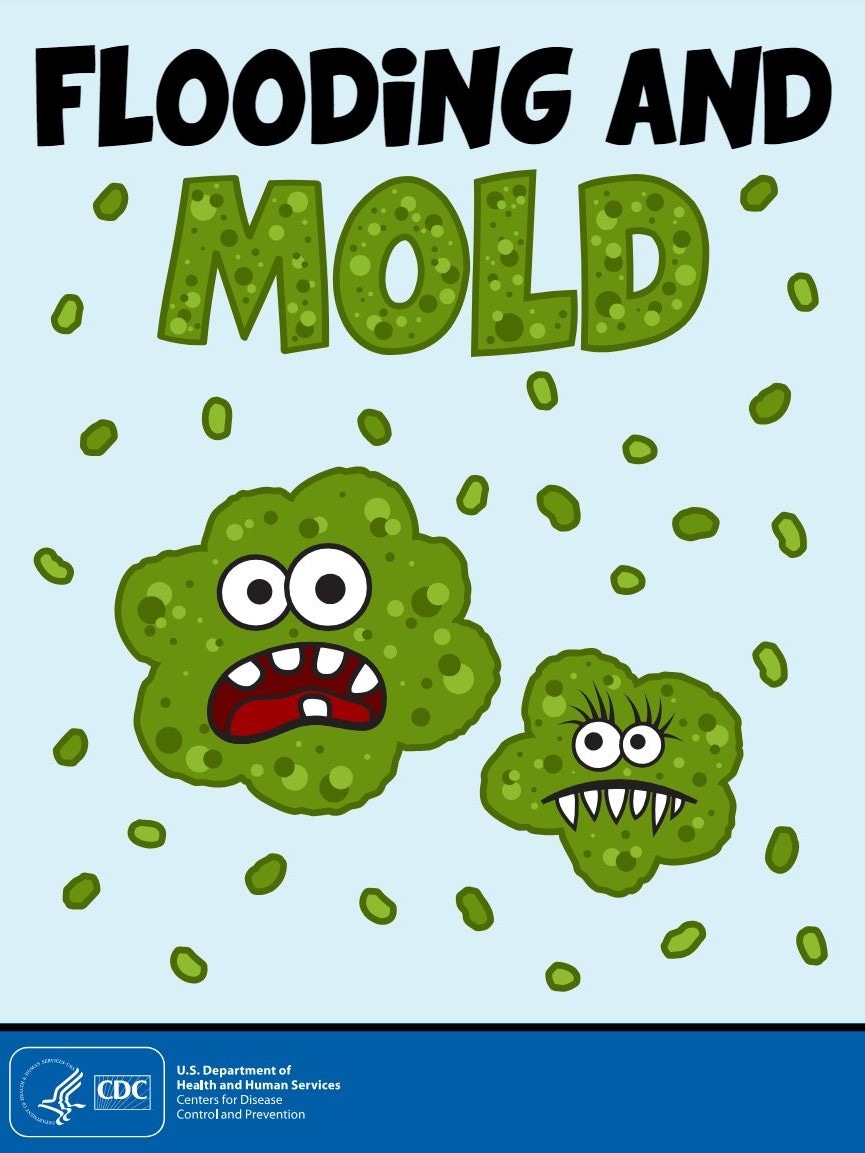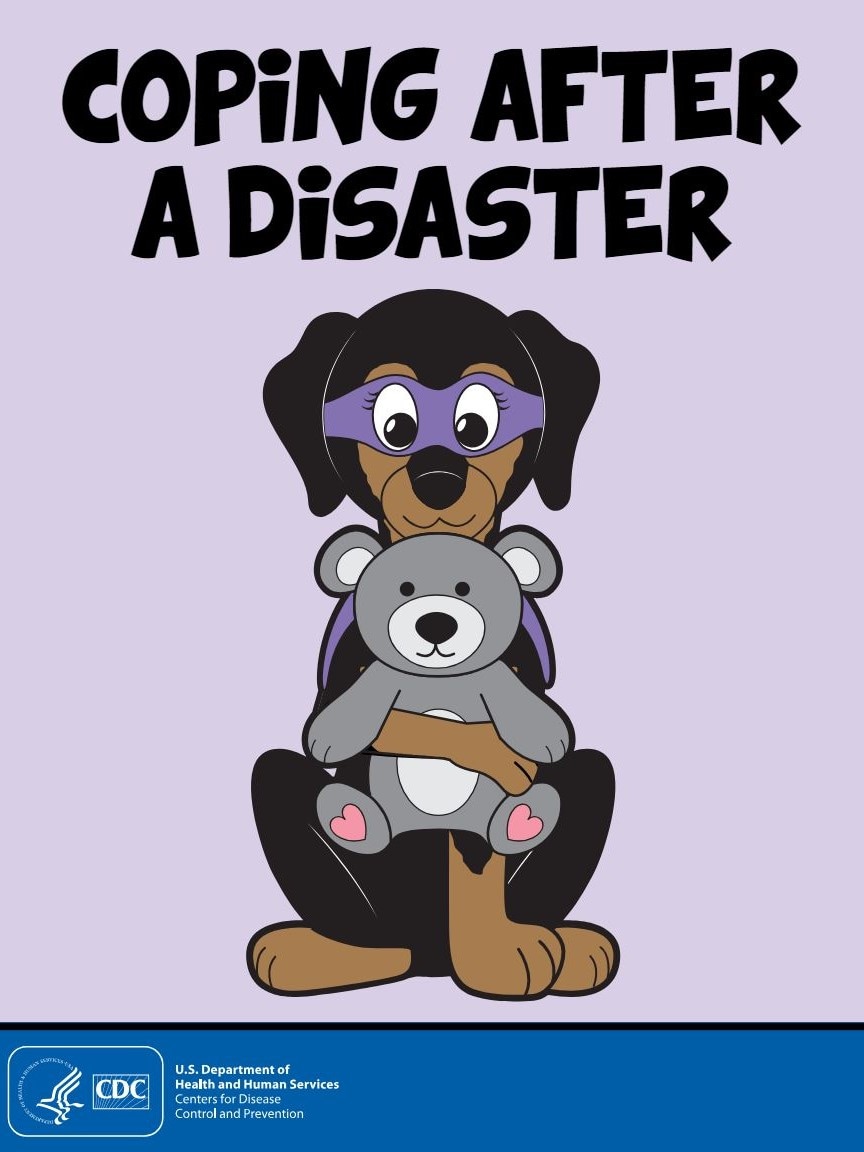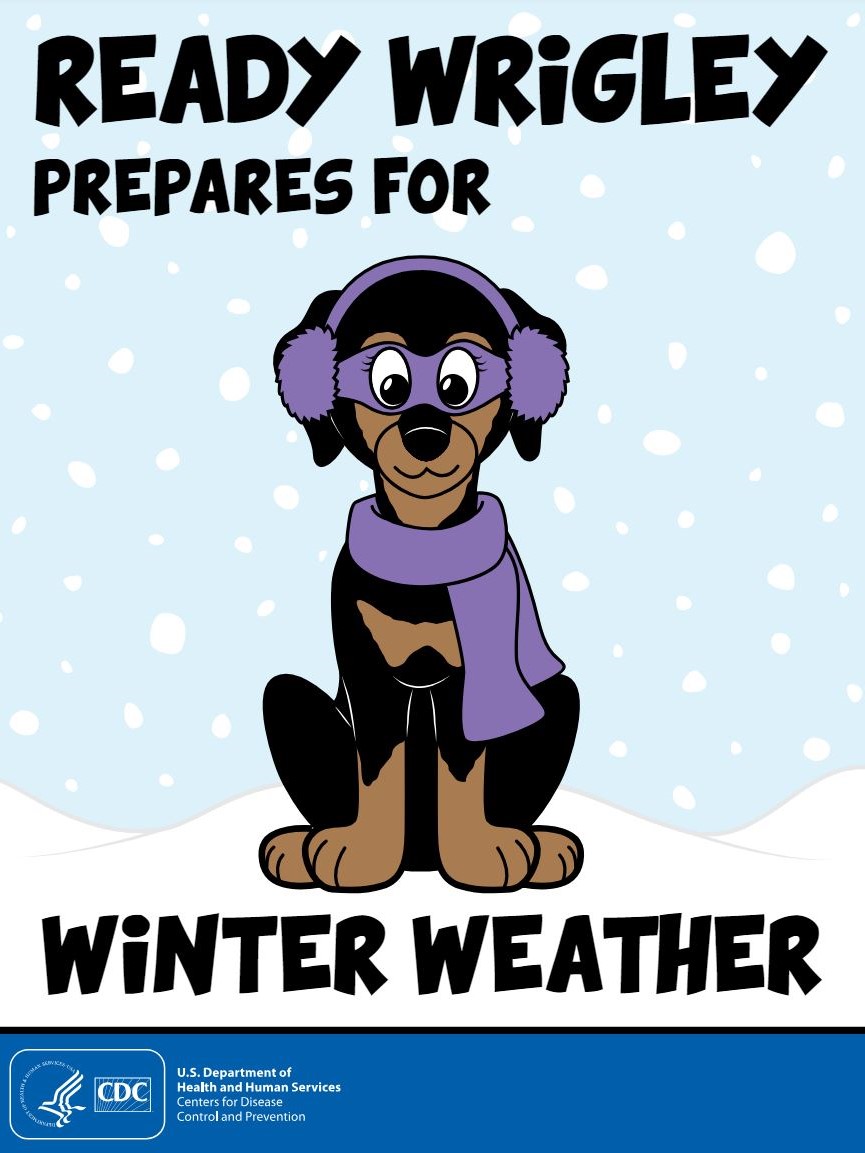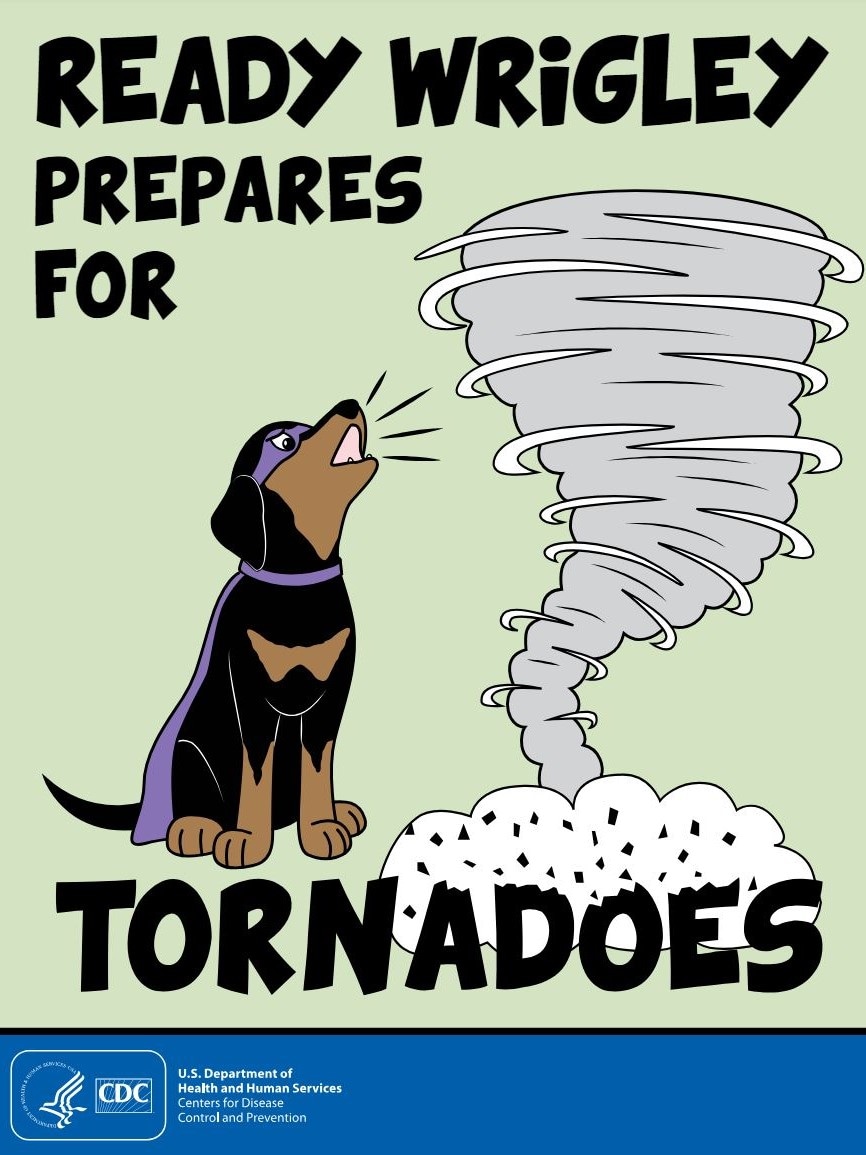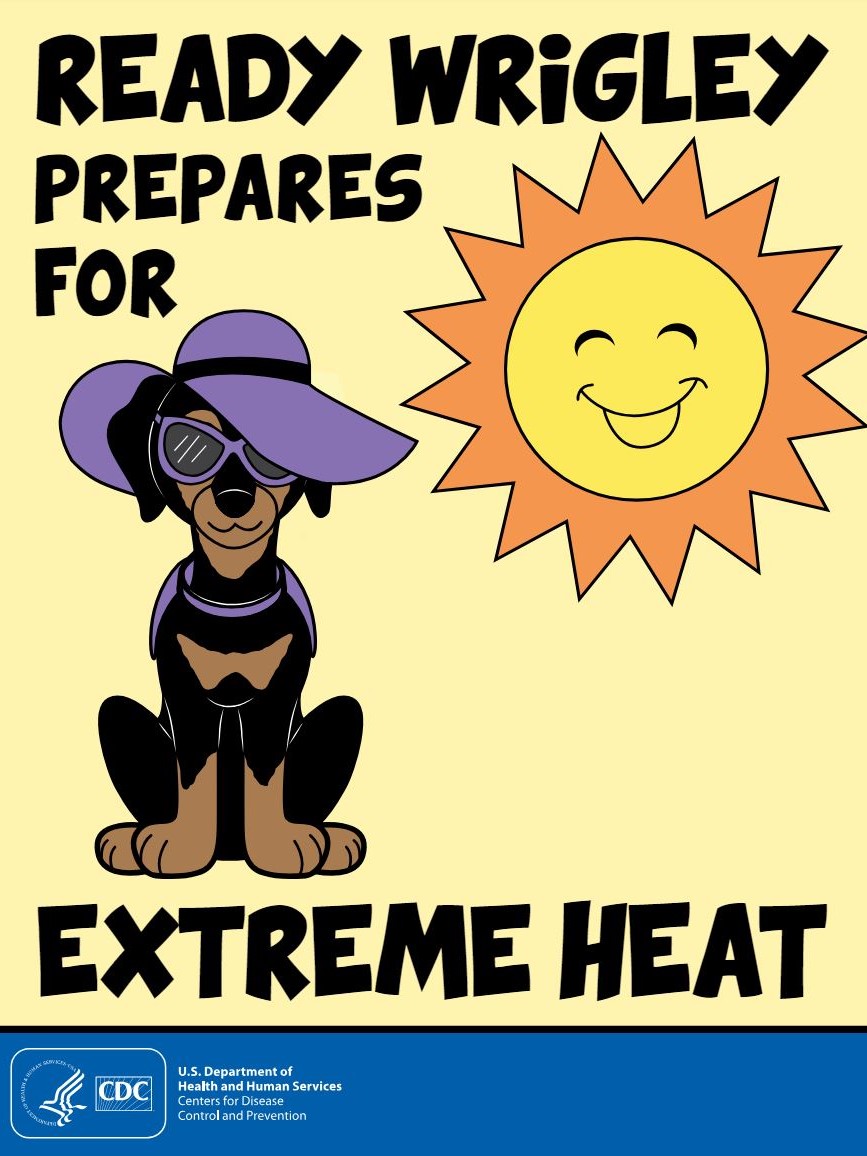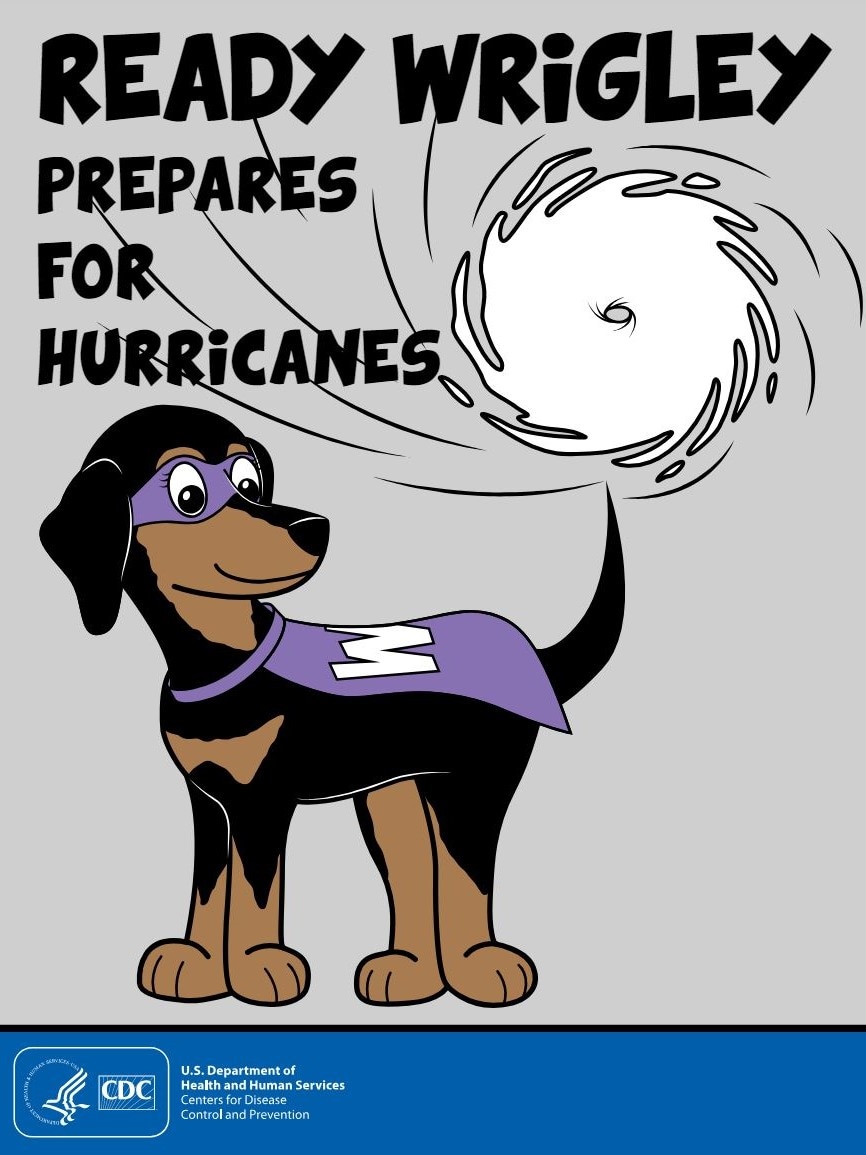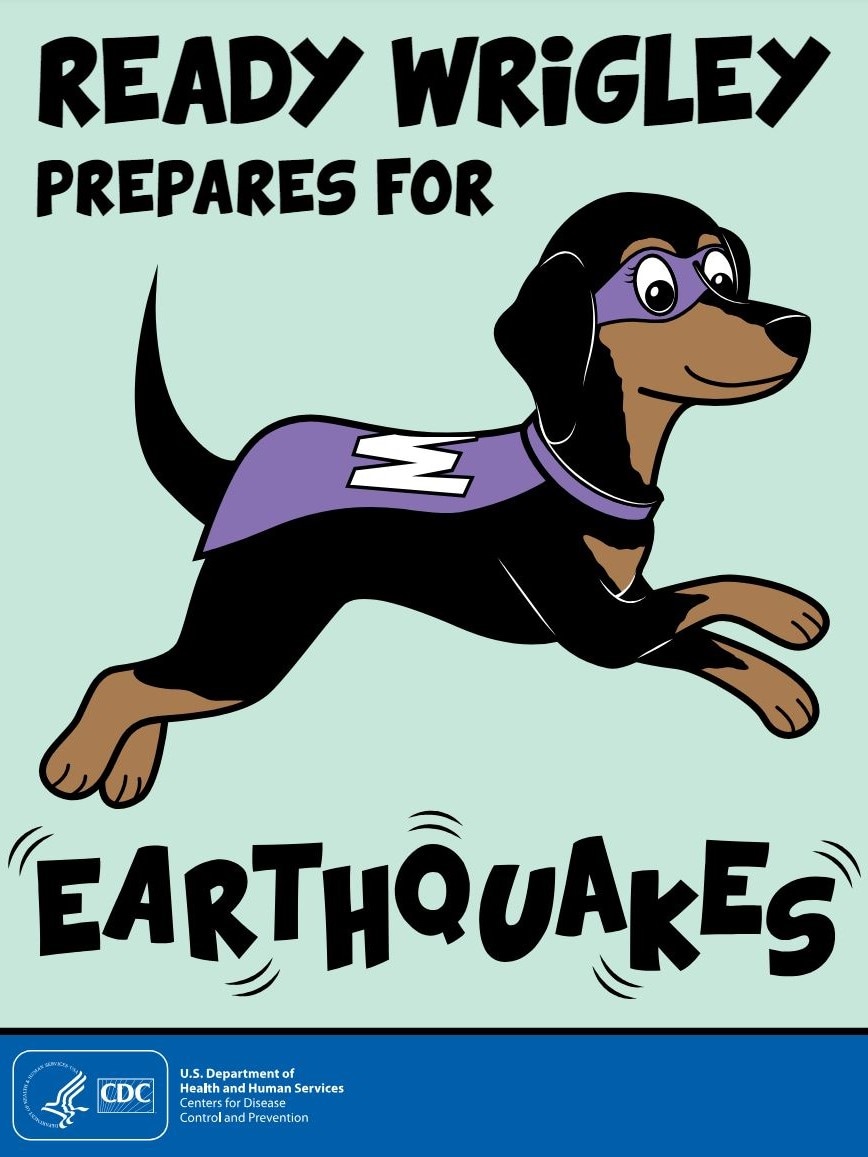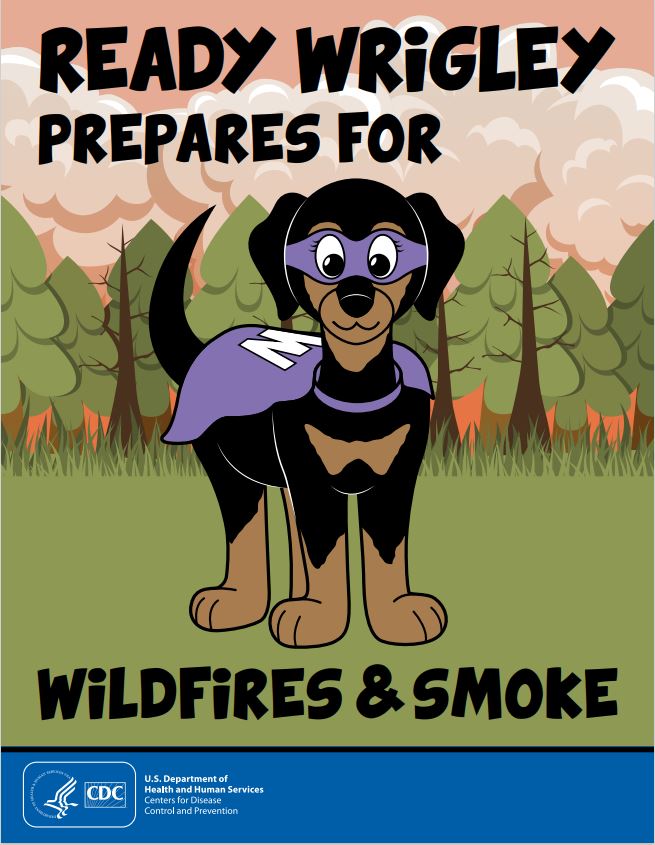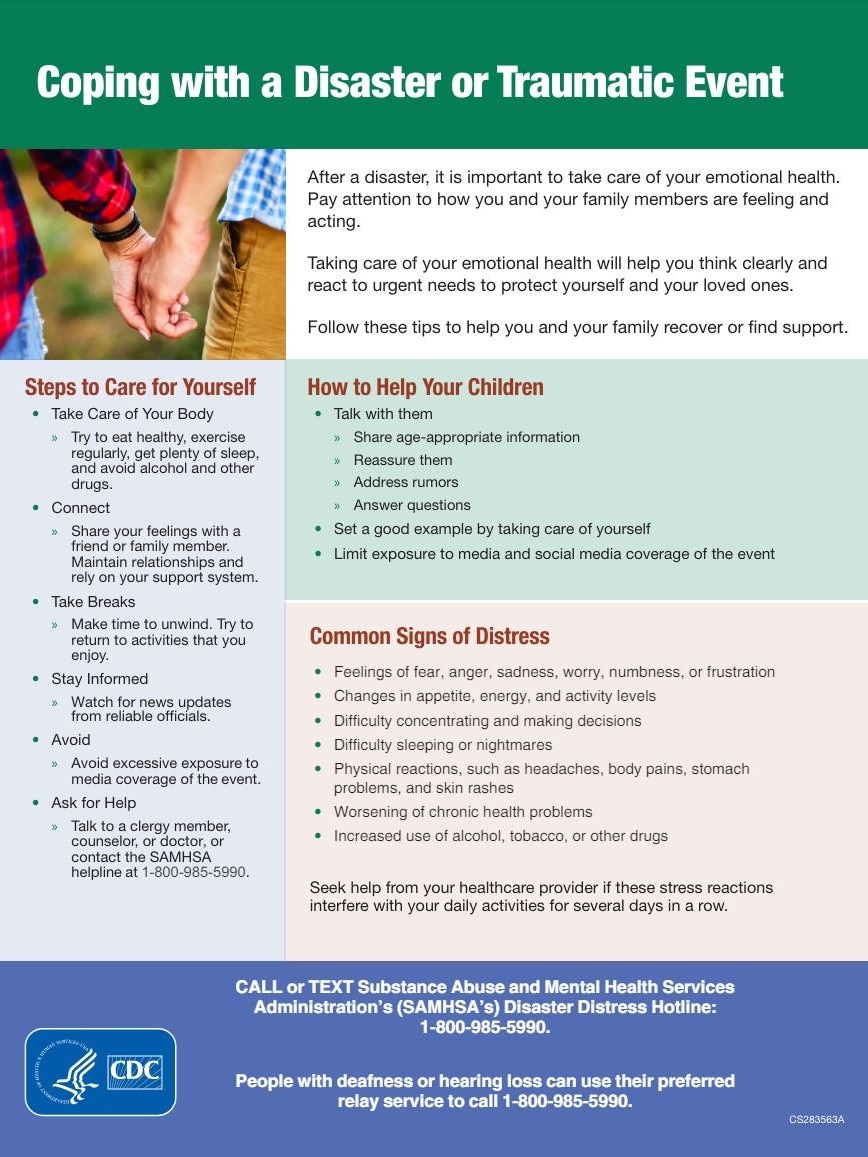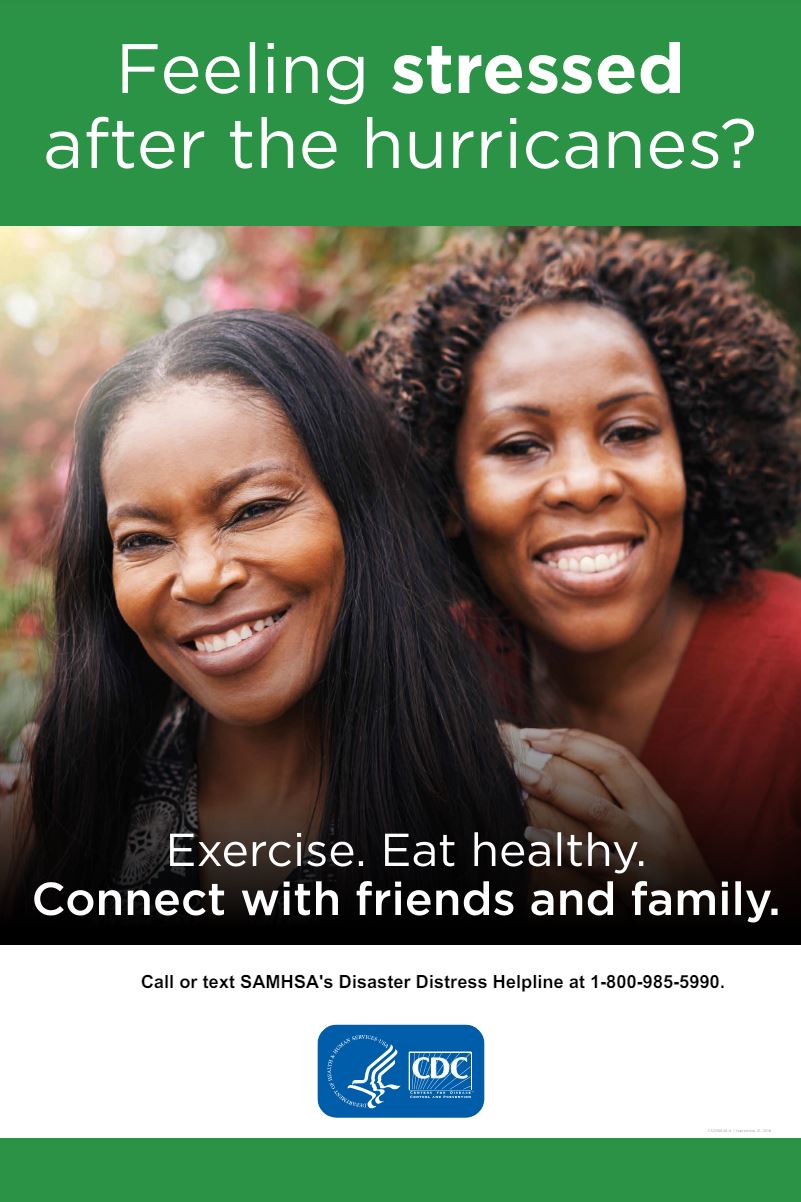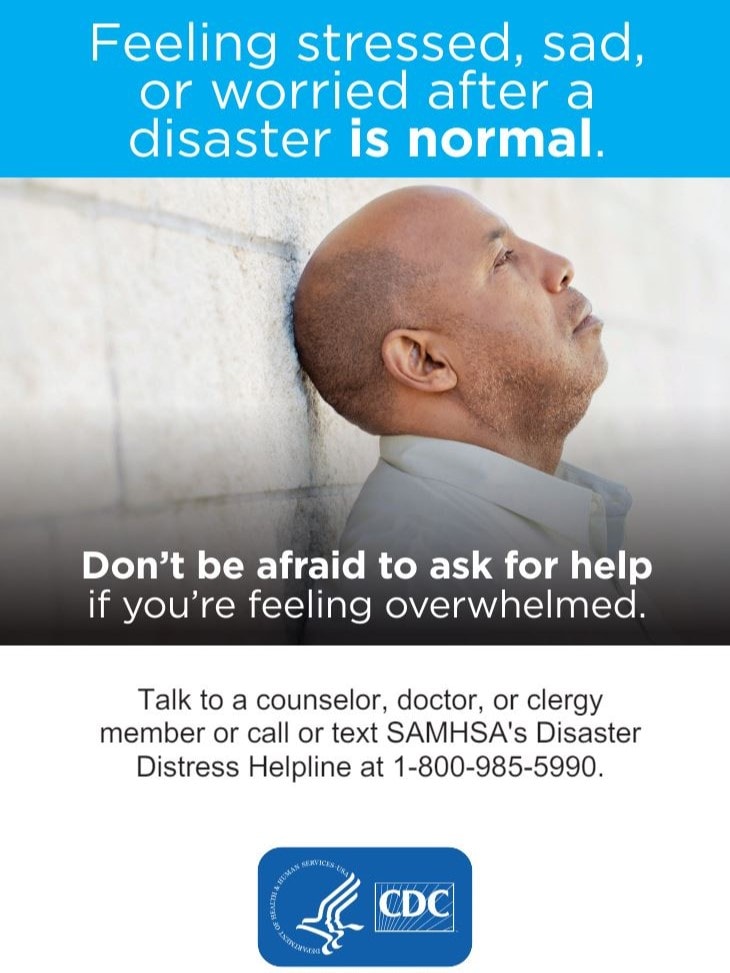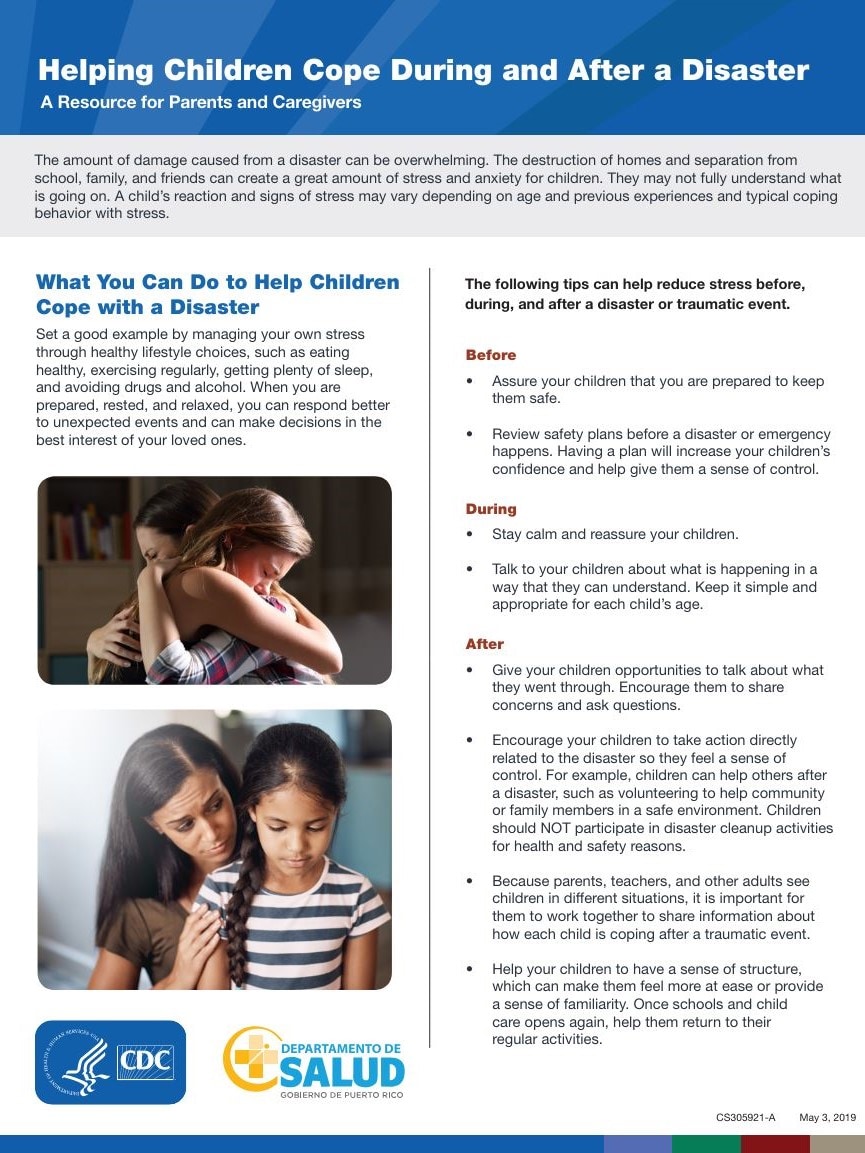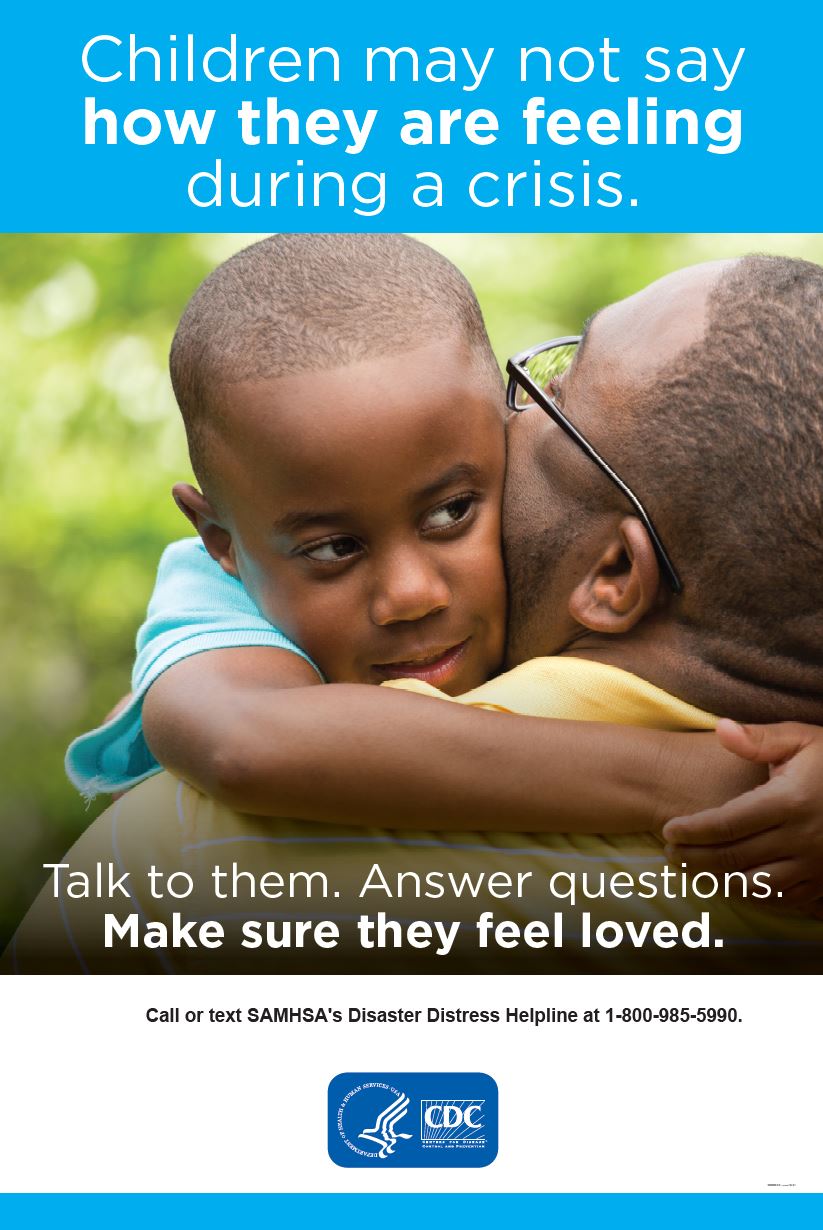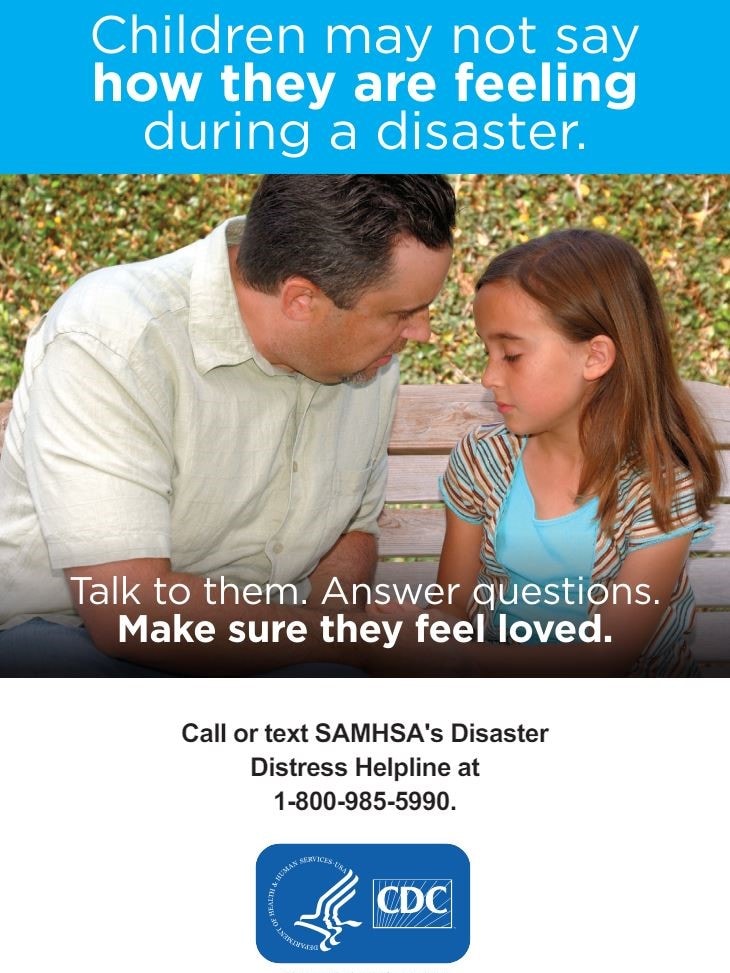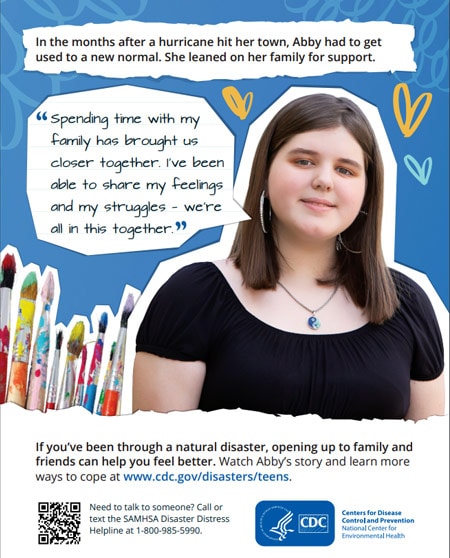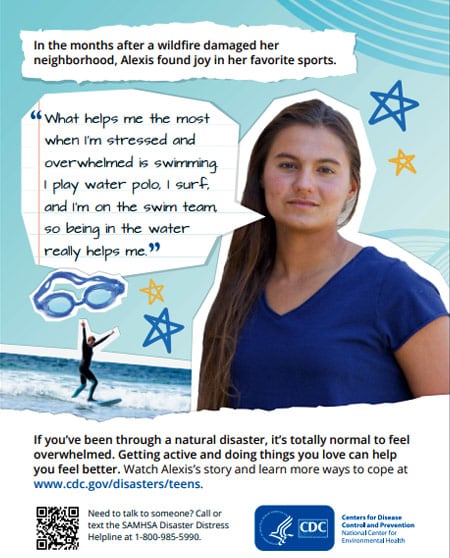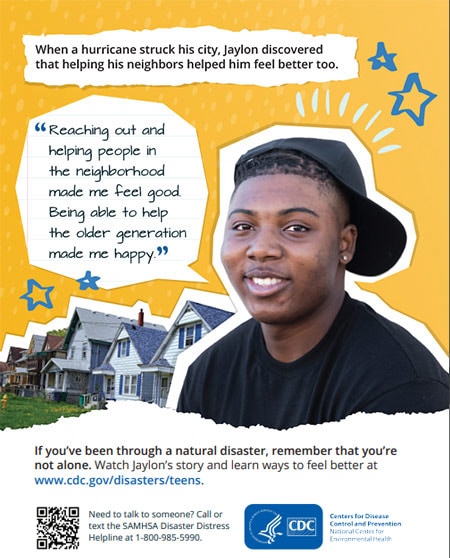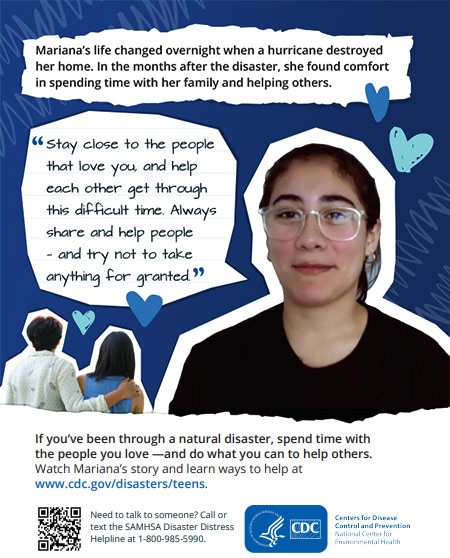Educational Materials by Topic
After a disaster, rats, mice and other pests might get in your home or building.
Protect yourself from mosquitoes after a natural disaster.
Following these important steps can keep your family safe from CO poisoning.
Learn how to safely use a generator to protect from CO poisoning.
Learn how to protect from CO poisoning while operating a furnace.
Prevent carbon monoxide poisoning. Never use a generator indoors, in garages, or carports.
Using a generator indoors will kill you. Exhaust contains a poison gas you cannot see or smell.
Carbon monoxide fumes can be harmful or fatal. You cannot see or smell this gas.
Carbon monoxide fumes can be harmful or fatal. You cannot see or smell this gas.
Generator engines can damage your hearing.
During and after a natural disaster, you may need supplies to keep your family safe and healthy.
Learn how to stay well in the aftermath of a disaster.
An infographic with quick tips for cleaning mold.
A checklist for items needed for cleaning mold from your home.
Take steps to protect your mouth, nose, skin, and eyes when cleaning up mold.
Mold can cause many health effects.
Infographic showing what to wear when cleaning up debris and household waste after a disaster.
Local officials will tell you how to get rid of chemicals in your area.
Check your HVAC system for mold.
Infographic showing how to keep children safe during disaster cleanup.
Use bleach to kill germs on things touched by flood water.
Protect yourself and your family after hurricanes. Be safe while cleaning up.
Refrigerated or frozen foods may not be safe to eat after the loss of power.
This fact sheet describes how to make sure your water is safe during an emergency and provides tips...
Available in English, Spanish, and Vietnamese.
After a flood or power outage, some food may not be safe to eat and must be thrown out.
Keep your hands clean to prevent the spread of germs.
Hands that look clean can still have icky germs. Wash your hands.
During an emergency, keeping hands clean can help keep you and others healthy.
This flyer lists the 7 steps of safe and healthy diaper changing in emergency settings.
Factsheet providing information for preventing diarrheal illness after a disaster.
The risk for injury during and after a hurricane and other natural disasters is high.
Leptospirosis is an infectious disease caused by bacteria.
Stay cool after a flood or hurricane.
Information about what to look for and what to do for heat-related illness.
Beat the heat. Heat-related deaths are preventable.
The risk of being struck by lightning is low, but the consequences of being struck by lightning are...
Flood activity book for children aged 3–7 years.
Coping activity sheet for children dealing with the aftermath of a hurricane.
Flooding and mold activity book for children.
Coping activity book for children facing the aftermath of a natural disaster.
Winter weather activity book for children.
Tornado safety activity book for children.
Extreme heat activity book for children.
Hurricane safety activity book for children.
Earthquake safety activity book for children.
Ready Wrigley Prepares for Wildfires & Smoke
After a disaster, it is important to take care of your emotional health.
Feeling stressed after a hurricane? Exercise, eat healthy, and connect with family and friends.
Feeling stressed, sad, or worried after a disaster is normal. Don’t be afraid to ask for help.
This factsheet can help parents and caregivers learn how to help their children cope with a disaster.
Children may not say how they are feeling during a crisis.
Children may not say how they are feeling during a disaster. T
In the months after a hurricane hit her town, Abby had to get used to a new normal.
In the months after a wildfire damaged her neighborhood, Alexis found joy in her favorite sports.
When a hurricane struck his city, Jaylon discovered that helping his neighbors helped him feel bette...
Mariana’s life changed overnight when a hurricane destroyed her home.
Content Source:
National Center for Environmental Health

